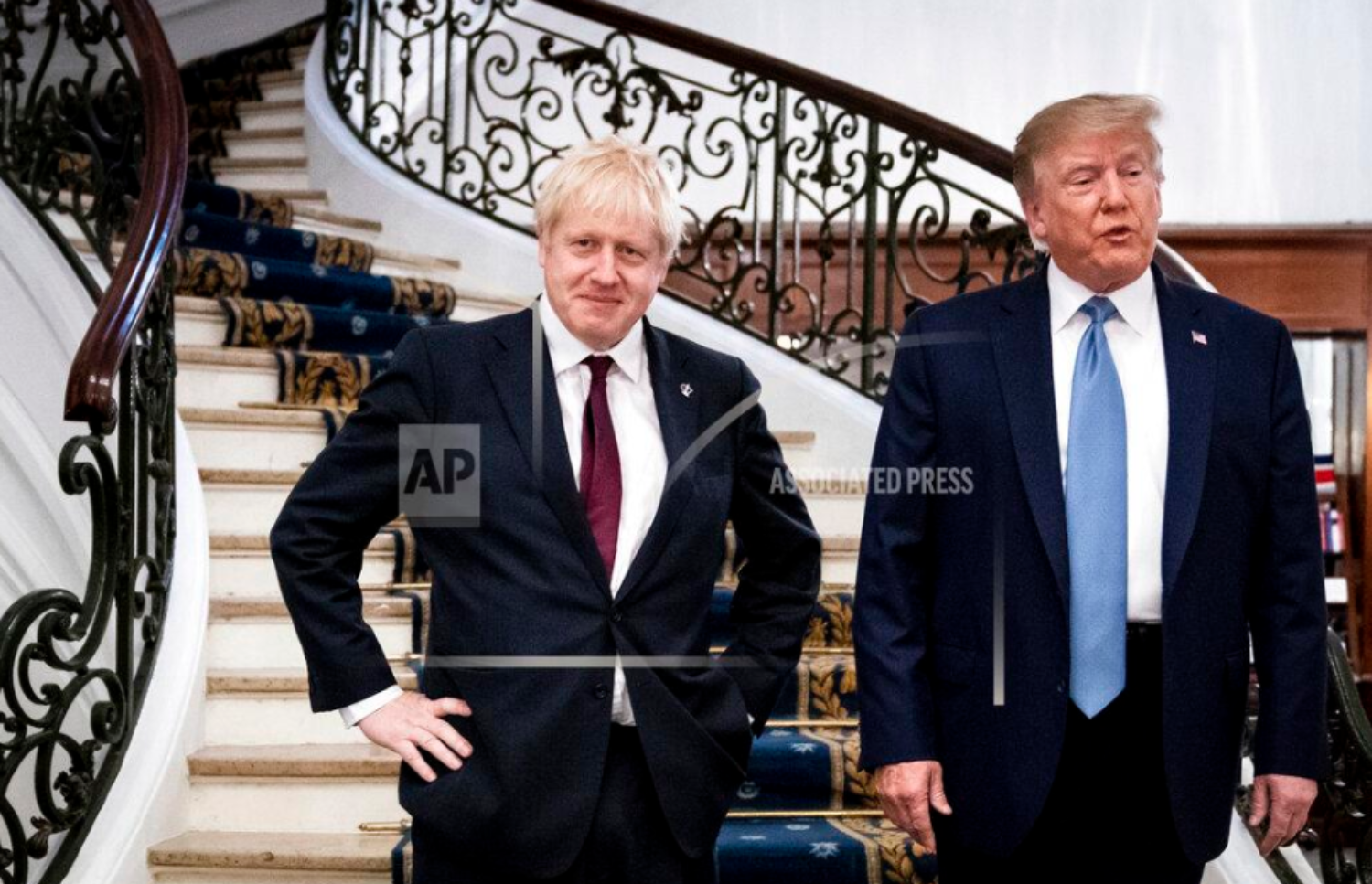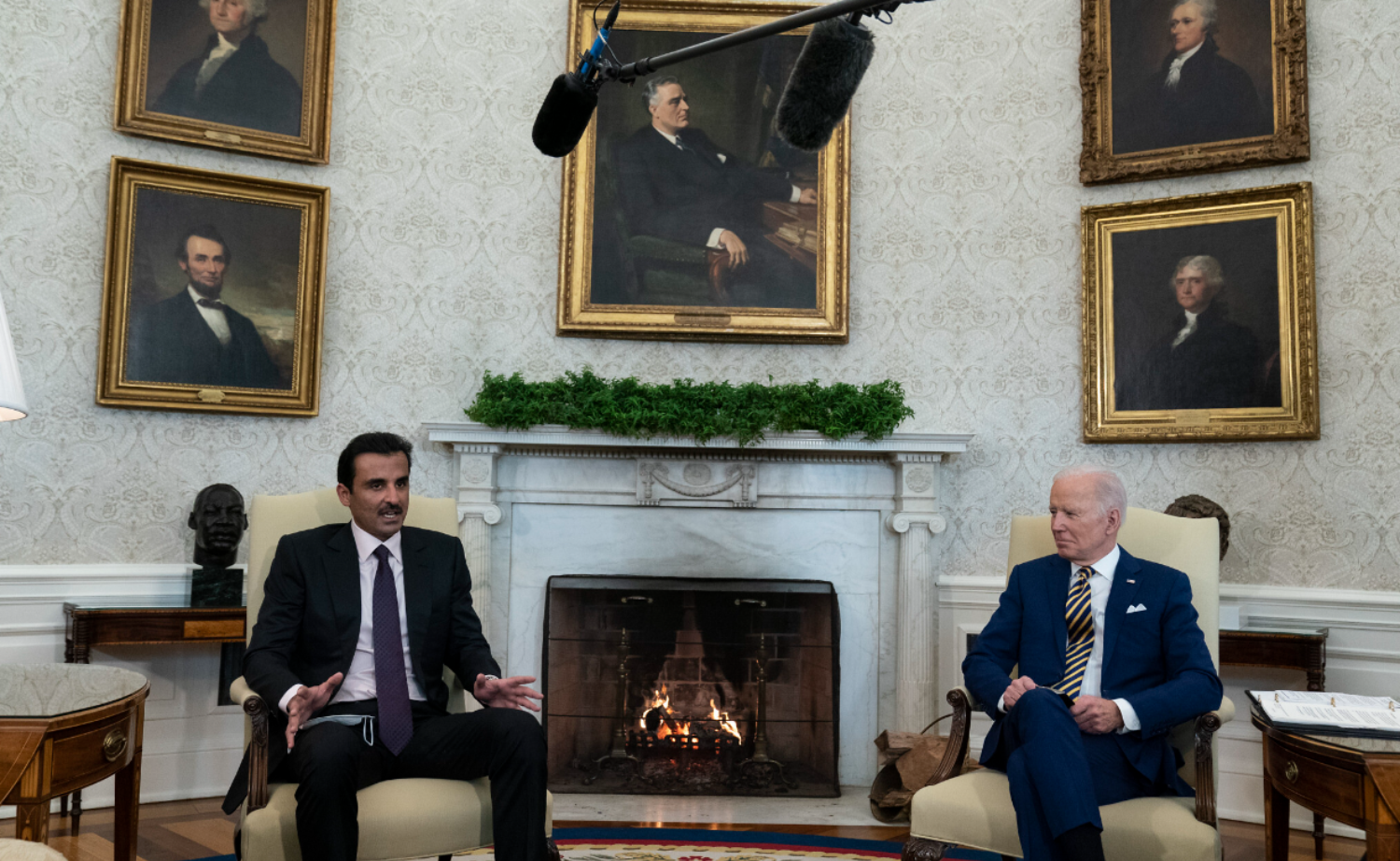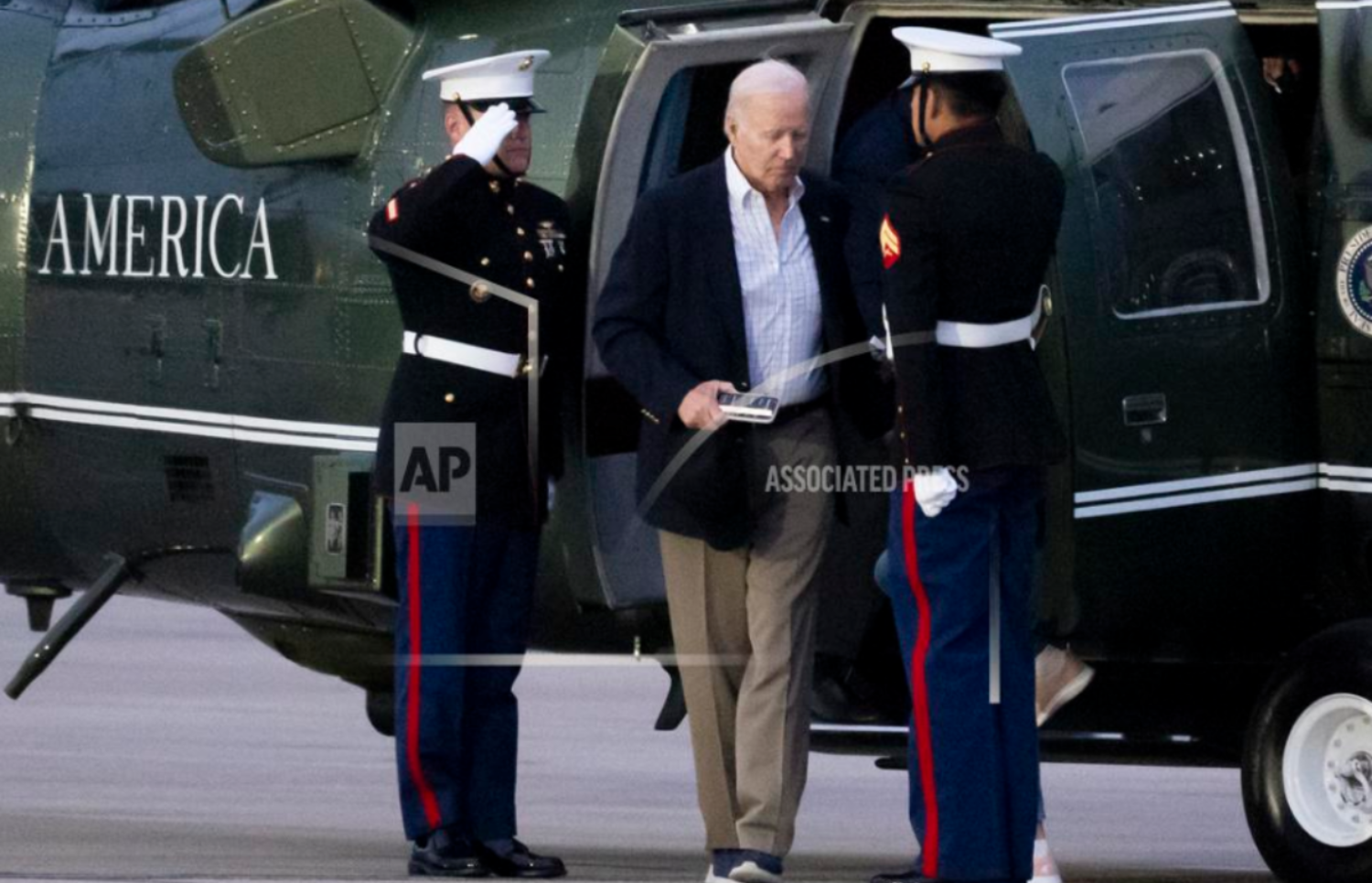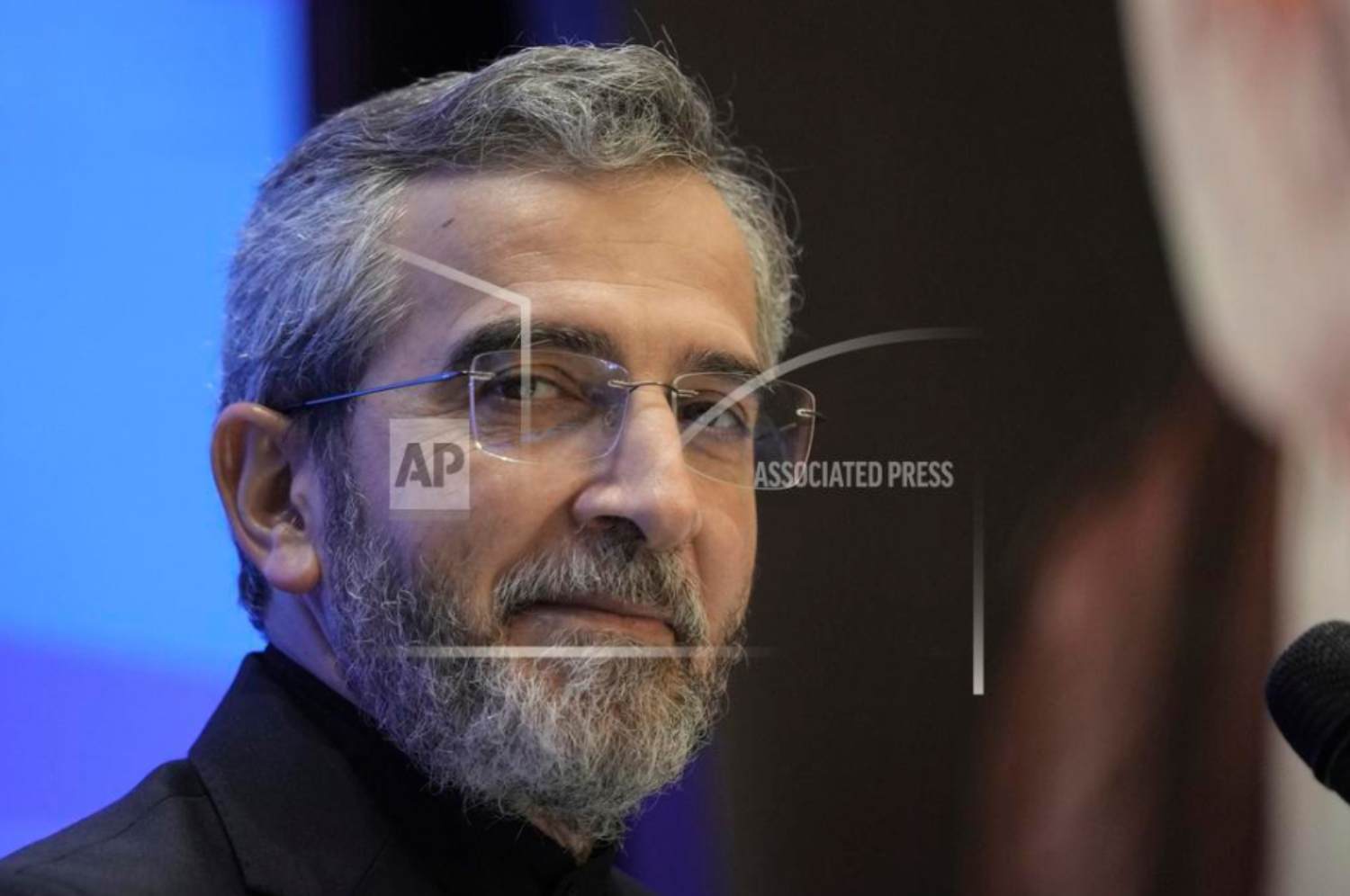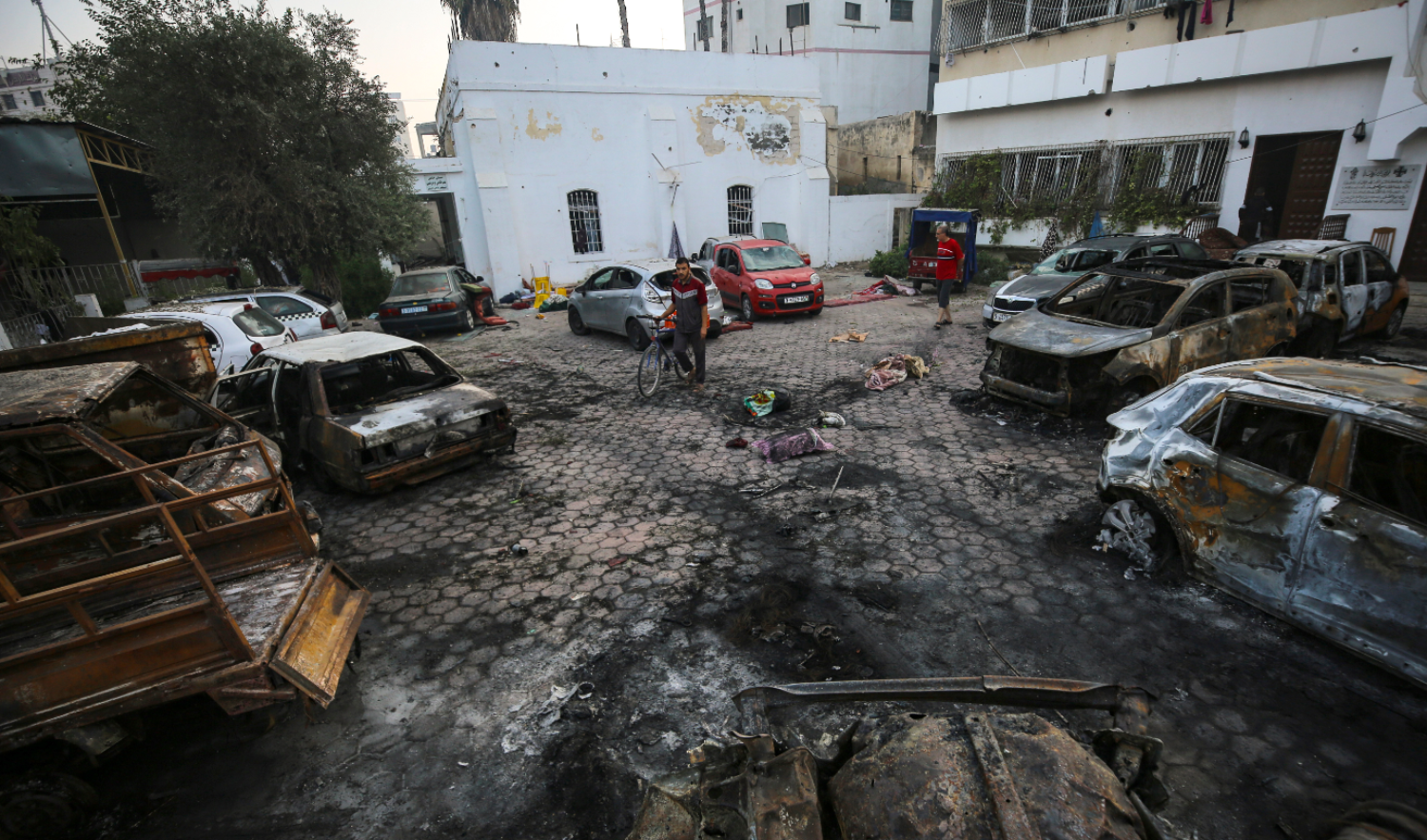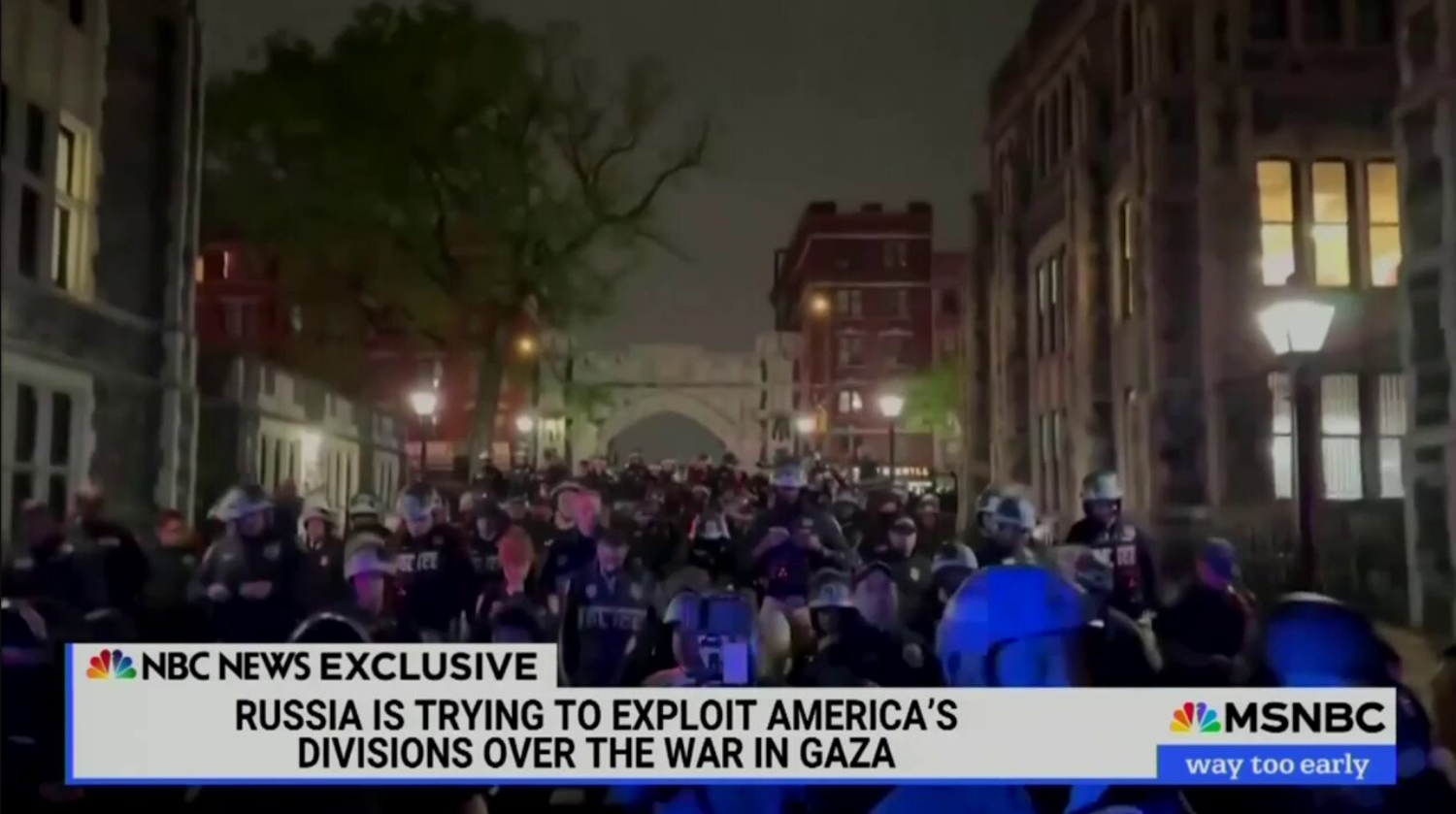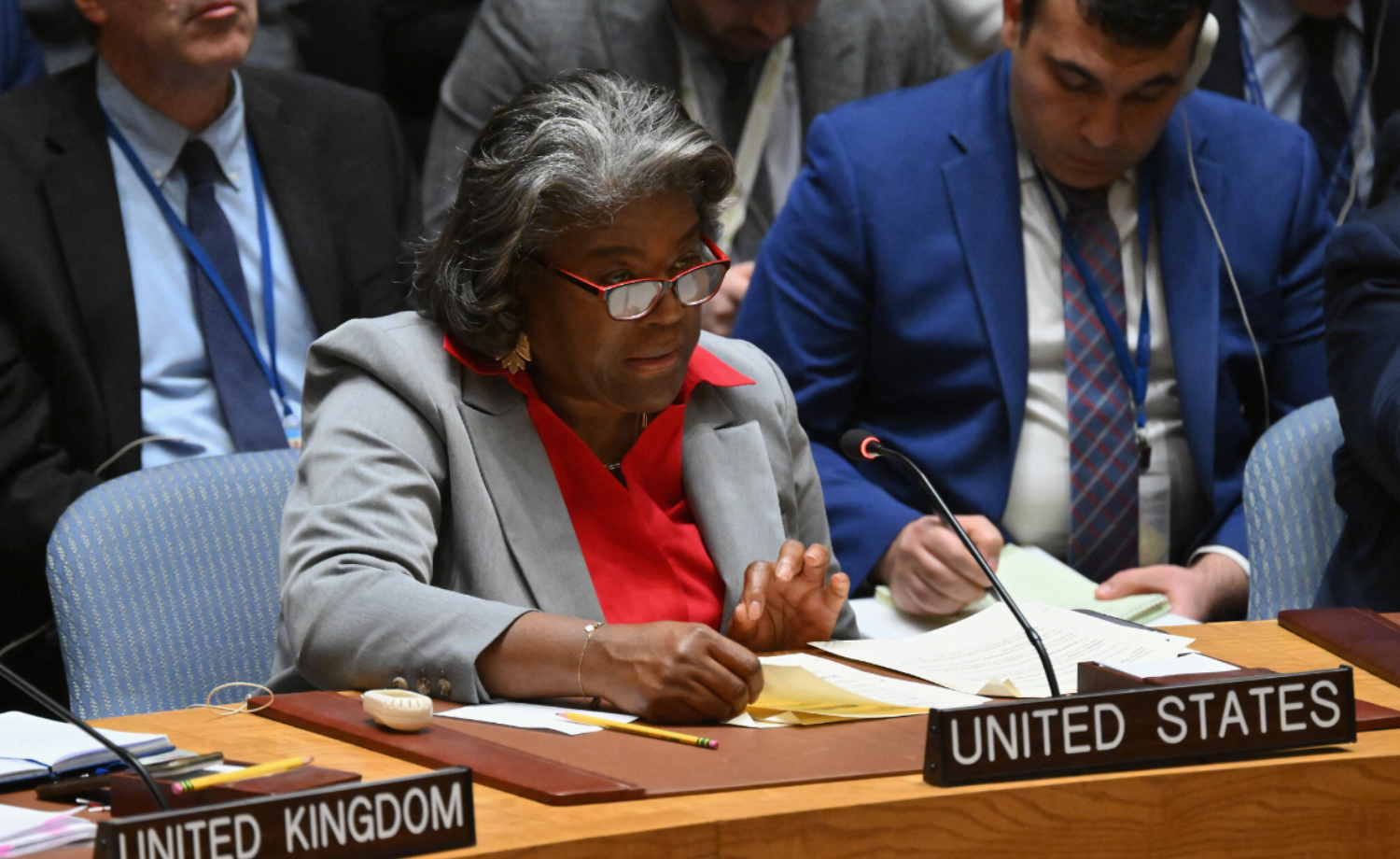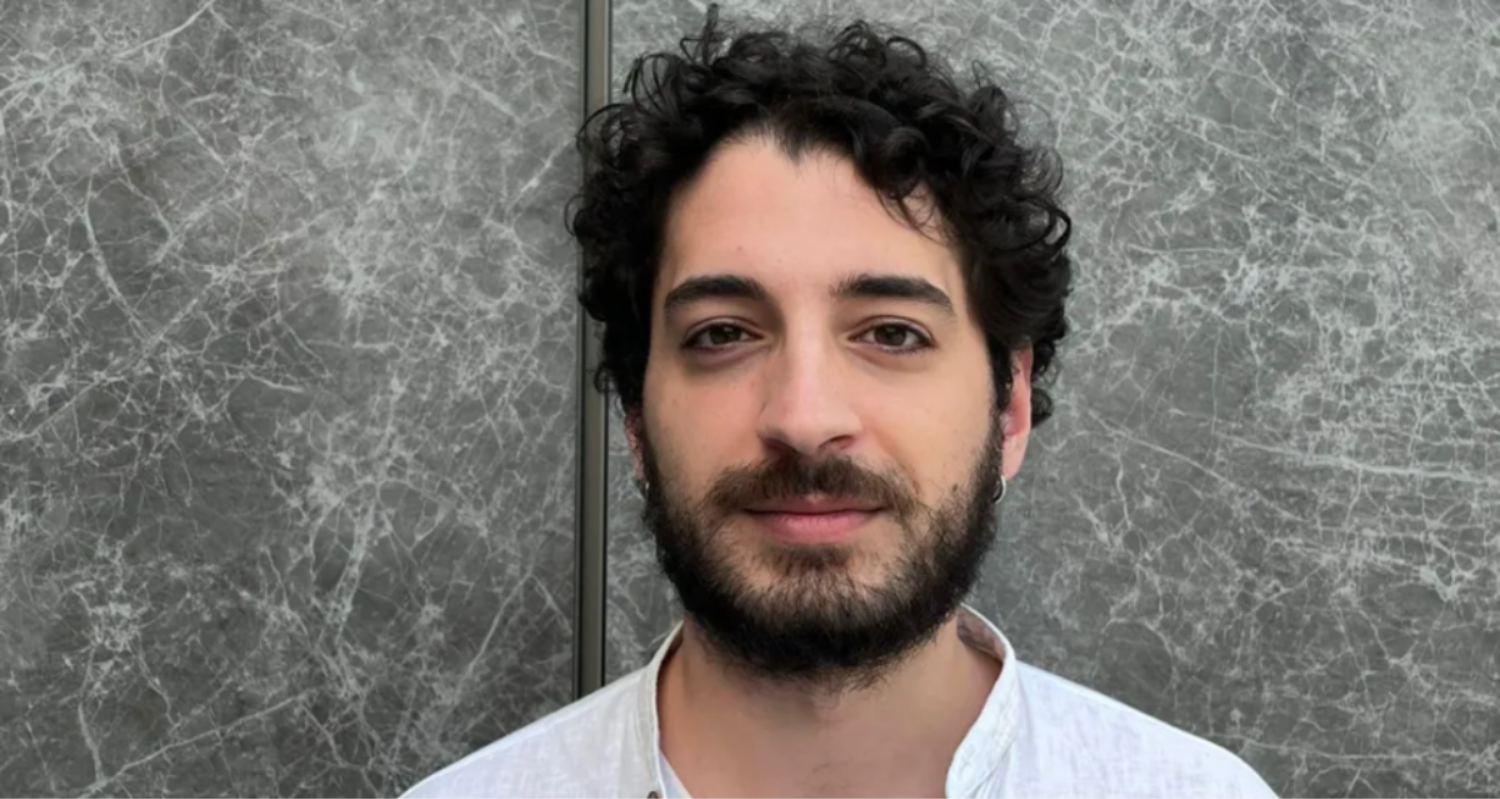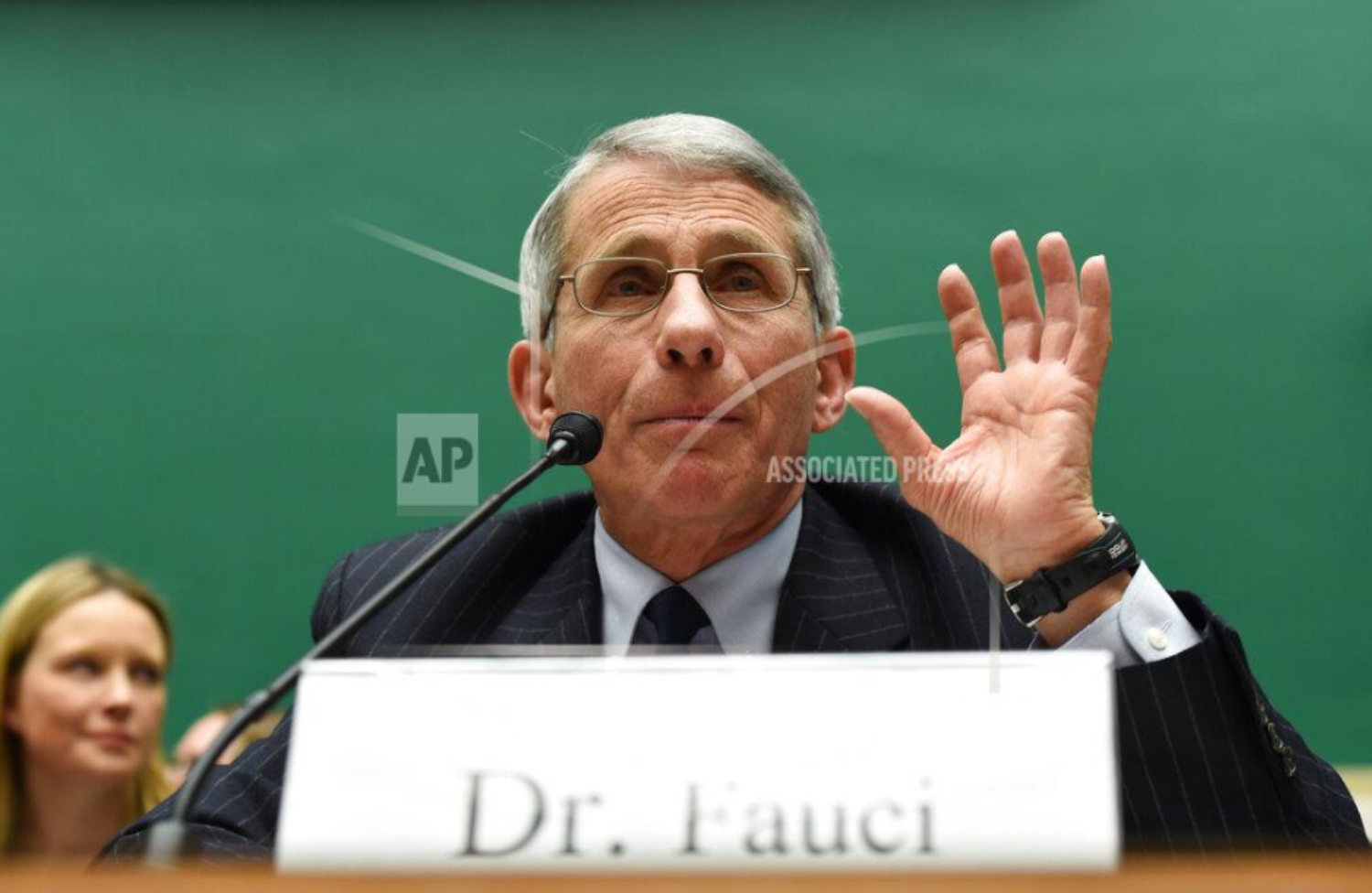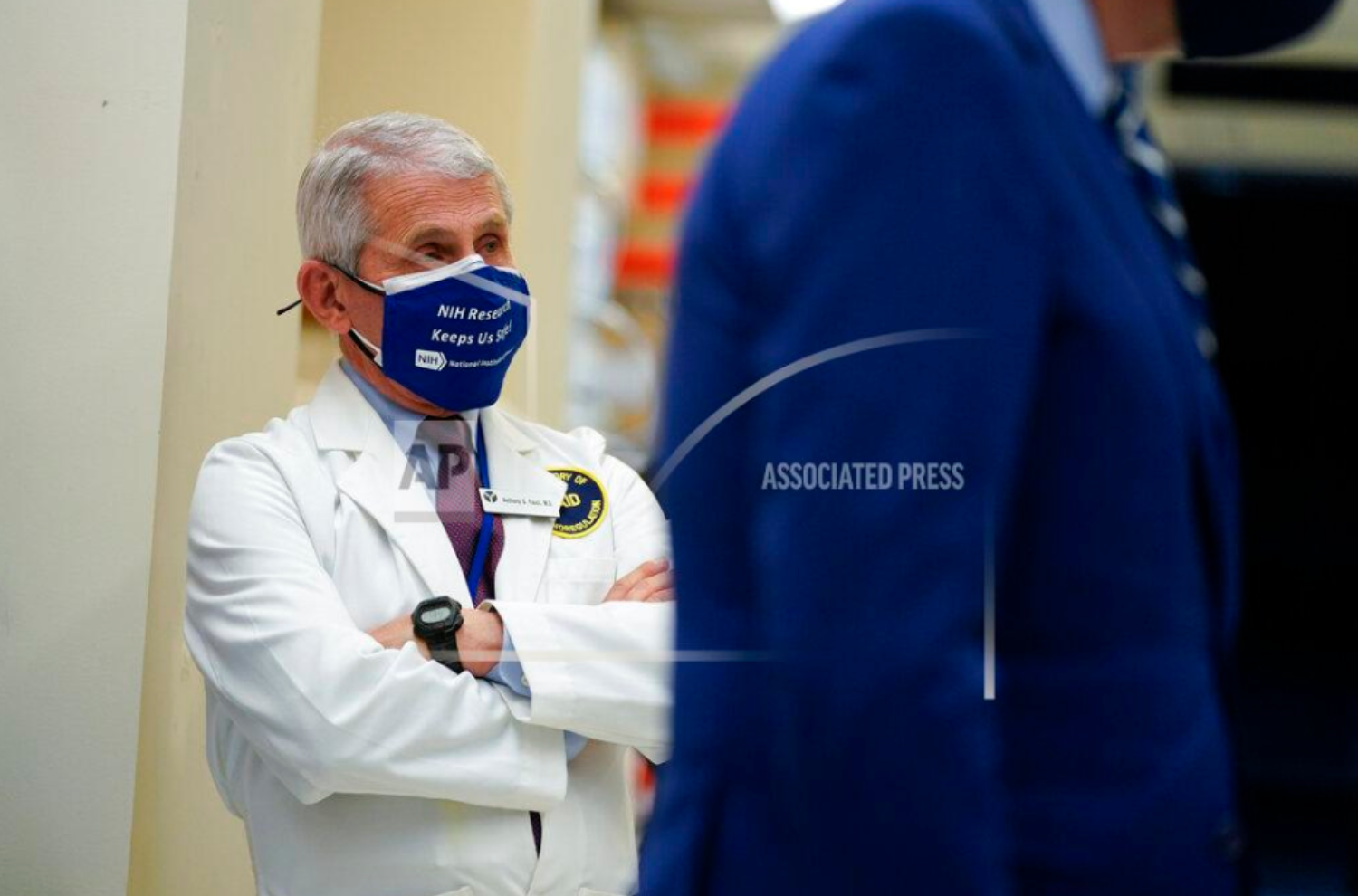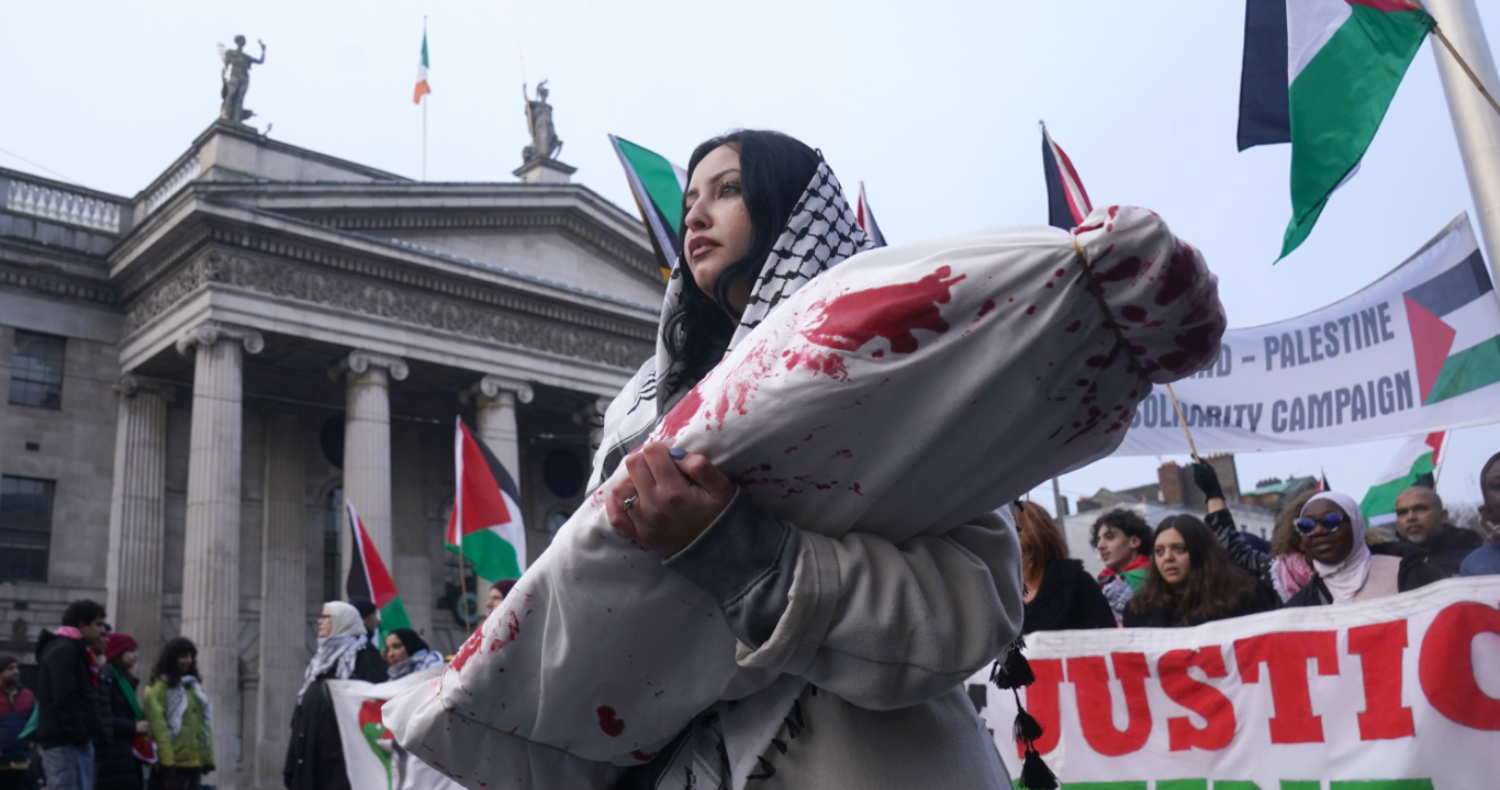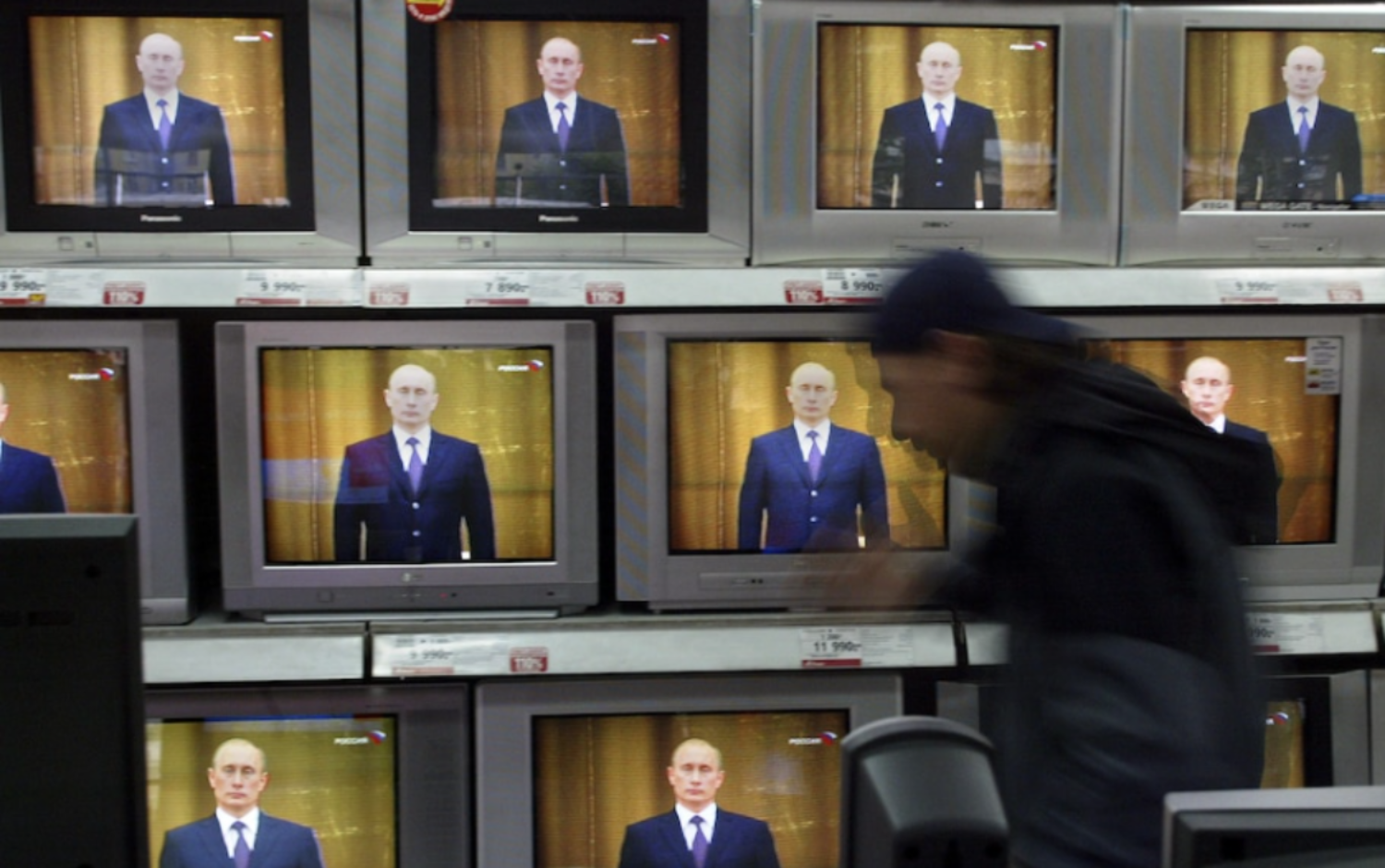-
Posts
10,064 -
Joined
-
Last visited
Content Type
Events
Forums
Downloads
Quizzes
Gallery
Blogs
Everything posted by Social Media
-
In a striking display of transatlantic political solidarity, former US President Donald Trump has publicly expressed his gratitude to former UK Prime Minister Boris Johnson for denouncing Trump's recent conviction as a "mob-style hit job." This development follows the former president’s recent legal troubles, where he was found guilty of falsifying business records related to payments made to silence Stormy Daniels, an adult film star, during his 2016 presidential campaign. Trump faces the possibility of a four-year jail sentence, but many legal experts believe a custodial sentence is unlikely. Instead, they speculate that he might receive home confinement or probation. Despite the severity of the charges, Trump’s supporters, including high-profile figures like Johnson, have rallied to his defense, framing the conviction as politically motivated. Boris Johnson, who maintained a warm relationship with Trump while both were in office, labeled the ruling as "nakedly political" and suggested it could potentially boost Trump’s chances for re-election. In his Daily Mail column, Johnson wrote, "This was no ordinary political assassination. This was a machine gun mob-style hit job on Trump." Trump, appreciative of Johnson’s support, shared excerpts from the column on his social media platform, Truth Social, and thanked Johnson in an early morning post. Johnson's outspoken defense of Trump marks the highest-profile support from a British politician thus far, adding pressure on current UK leaders like Prime Minister Rishi Sunak and opposition leader Sir Keir Starmer to navigate the complexities of the US-UK "special relationship." Both Sunak and Starmer have so far avoided commenting directly on the case, likely due to the sensitive nature of the situation and the potential diplomatic ramifications. Whoever emerges as the UK's prime minister following the next general election will need to maintain working relations with the US, particularly if Trump, currently a frontrunner in the Republican primaries, wins the 2024 presidential election. Trump’s legal saga stems from a New York jury's conviction on 34 charges of falsifying documents to conceal payments made to Daniels. Despite the conviction, Trump remains eligible to run for and potentially occupy the White House again. In a defiant speech at Trump Tower, the launch site of his 2016 campaign, Trump blamed his legal woes on President Joe Biden and the presiding judge, whom he described in disparaging terms. "This was a politically motivated attack, orchestrated to sabotage my campaign," Trump declared, asserting that the trial was rigged against him. In his speech, Trump also addressed his followers, expressing a mixture of defiance and caution. He claimed to be "OK" with the possibility of incarceration but warned that such an outcome could push his supporters to a "breaking point." This rhetoric, while rallying his base, also raises concerns about potential unrest among his most fervent followers. The former president’s confrontational approach towards Judge Juan Merchan, who will determine his sentence, has been a notable aspect of his defense strategy. Trump’s legal team has aggressively criticized Merchan, suggesting bias and unfair treatment. However, legal experts warn that such attacks could have adverse effects, possibly influencing the severity of the sentencing. As the political and legal drama unfolds, Trump’s conviction continues to polarize opinion across the United States and beyond. His supporters view the legal proceedings as a witch hunt designed to derail his political ambitions, while critics argue that the rule of law must be upheld, regardless of one’s political status. The involvement of international figures like Boris Johnson adds another layer of complexity, highlighting the global impact of Trump’s ongoing legal and political battles. With the sentencing scheduled for July 11, all eyes remain on how the legal system will handle the case of a former—and potentially future—president. The outcome will not only affect Trump’s immediate future but also shape the political landscape as the 2024 presidential election approaches. Credit: Daily Telegraph 2024-06-05 Get our Daily Newsletter - Click HERE to subscribe
-
On Monday, President Joe Biden conveyed to Qatari Emir Tamim bin Hamad Al Thani that Israel was prepared to move forward with a hostage deal proposal, urging Qatar to exert pressure on Hamas to accept the terms. The White House released a readout of the call, in which Biden "confirmed Israel’s readiness to move forward with the terms that have now been offered to Hamas" and "urged [the emir] to use all appropriate measures to secure Hamas’ acceptance of the deal." The nature of Biden's statement remains somewhat ambiguous, as Israeli Prime Minister Benjamin Netanyahu had earlier claimed there were discrepancies between what Biden announced and what Israel's war cabinet had authorized. Netanyahu's remarks have complicated the situation, causing Hamas to seek clarification on the deal's clauses, which had been intentionally left vague to secure initial agreement from both sides. The urgency of Biden's request to Qatar marks a significant public appeal to Doha, which hosts many of Hamas's political leaders. This follows a previous private request from US Secretary of State Antony Blinken to Qatar's Prime Minister Mohammed Al-Thani, urging the expulsion of Hamas leaders if they continued rejecting hostage deal proposals. Qatar briefly complied but later allowed Hamas leaders to return when negotiations resumed. The proposed deal entails several stages. The first phase involves the release of female, elderly, and sick hostages taken during Hamas’s October 7 attack, extending over six weeks. Following this, negotiations would address a permanent ceasefire and the release of remaining hostages. The final phase would involve releasing the bodies of hostages and initiating an internationally supported reconstruction plan for Gaza. During the call, Biden emphasized that the proposed comprehensive ceasefire and hostage release deal represents a concrete roadmap to end the Gaza crisis. He reiterated that Hamas’s refusal to release hostages would only prolong the conflict and deny relief to Gaza's residents. Biden, alongside the US, Egypt, and Qatar, is committed to the full implementation of the agreement, urging that Hamas is the remaining obstacle to achieving a ceasefire and humanitarian relief. Meanwhile, US National Security Adviser Jake Sullivan communicated with a top aide to Turkish President Recep Tayyip Erdoğan, stressing the urgency for Hamas to accept Israel's proposal for an immediate ceasefire as part of the hostage deal. While Turkey does not formally host Hamas leaders, it holds significant influence over the group, with Erdoğan referring to Hamas as “freedom fighters” during the Gaza conflict. There are signs of cautious optimism from both sides. An official close to the negotiations noted that Hamas leaders have responded "overwhelmingly positively" to the latest Israeli proposal, though formal acceptance is pending. Hamas is expected to send a delegation to Cairo to discuss the deal further, with mediators expressing unprecedented optimism about the chances for an agreement. In a related development, the foreign ministers of the UAE, Saudi Arabia, Qatar, Jordan, and Egypt released a joint statement supporting Biden's efforts to secure the hostage-ceasefire deal. The Group of Seven (G7) also expressed full endorsement of the Israeli proposal outlined by Biden, advocating for a credible pathway toward peace and a two-state solution. On the same day, the US introduced a resolution at the United Nations Security Council supporting the latest Israeli hostage release-ceasefire proposal. US Ambassador to the UN Linda Thomas-Greenfield called for the Security Council to join in urging the implementation of the deal without delay. The resolution seeks to align with calls for hostages' release, a ceasefire, humanitarian aid to Gaza, and a long-term reconstruction plan for the region. The Israeli perspective, however, remains complex. Netanyahu has publicly expressed concerns about perceived gaps in the proposal, emphasizing Israel’s war aims of dismantling Hamas’s capabilities, securing the release of all hostages, and eliminating threats from Gaza. His remarks about resuming military operations after the first phase have added to Hamas’s reservations, potentially jeopardizing the deal’s ambiguity necessary for its initial acceptance. To that regard, Biden noted later in his address, “If Hamas fails to fulfill its commitments under the deal, Israel can resume military operations.” Two clauses in the deal, leaked later on Monday, highlight the delicate balance. Clause 8 and Clause 14 outline the commencement of indirect negotiations and the continuation of ceasefire and aid efforts contingent on ongoing negotiations. These clauses are meant to be vague enough to enable both sides to interpret them as they wish. On the one hand, the wording can be understood to mean that “if the negotiations take longer than six weeks for phase one, the ceasefire will still continue as long as negotiations continue,” as Biden stated in his address on Friday. On the other, Israel can say that if the negotiations continue in a way that is not genuine, then the fighting can resume. White House Readout of President Biden’s Call with Amir Sheikh Tamim Bin Hamad Al-Thani of Qatar Credit: TOS 2024-06-05 Get our Daily Newsletter - Click HERE to subscribe
-
President Joe Biden issued a heartfelt statement on Monday as jury selection began in the criminal trial of his son, Hunter Biden. Expressing his unwavering support, Biden emphasized his "boundless love" for Hunter and his respect for his son's resilience and strength. The president's statement comes at a crucial time as Hunter faces a federal trial on three felony gun charges. If convicted, these charges carry a maximum sentence of 25 years in prison. Despite the gravity of the situation, Biden maintained that his role as a father supersedes his presidential duties when it comes to expressing personal feelings about his son. "As the President, I don't and won't comment on pending federal cases, but as a Dad, I have boundless love for my son, confidence in him, and respect for his strength," Biden said. This distinction underscores his commitment to maintaining the separation between his official responsibilities and personal sentiments. Biden's statement is not just a show of support; it is a reaffirmation of his deep familial bonds and the trials they have collectively endured. "I am the President, but I am also a Dad. Jill and I love our son, and we are so proud of the man he is today," he declared. Highlighting Hunter's journey through adversity and his recovery process, Biden expressed admiration for his son's resilience and strength, which he finds inspiring. "Our family has been through a lot together, and Jill and I are going to continue to be there for Hunter and our family with our love and support," Biden added. This sentiment reflects the close-knit nature of the Biden family and their collective resolve to support each other through difficult times. Several members of the Biden family were present in court with Hunter, including First Lady Jill Biden and his sister, Ashley Biden. This visible support from his family underscores the unity and strength they draw from each other during challenging periods. While President Biden was in Wilmington on Monday and not expected to attend the trial, his presence was felt through his public statement and the support of his family members in court. The Biden family's history of enduring personal tragedies adds a poignant layer to their current ordeal. Hunter is President Biden's "only surviving son," following the death of Beau Biden from brain cancer in 2015. Furthermore, Hunter is the sole survivor of the 1972 car accident that claimed the lives of Biden's first wife and daughter, leaving Hunter and Beau hospitalized. This backdrop of personal loss and resilience shapes the president's perspective and response to Hunter's legal challenges. By publicly affirming his love and support for his son, Biden underscores the importance of family solidarity and the strength drawn from mutual support in the face of adversity. Hunter Biden's trial, marked by significant legal and political implications, continues to unfold under the watchful eyes of the public and the media. President Biden's statement serves as a reminder of the human element at the heart of this high-profile case—a father's enduring love and unwavering support for his son amidst challenging times. Credit: Washington Post 2024-06-05 Get our Daily Newsletter - Click HERE to subscribe
-
Iran's acting Foreign Minister, Ali Bagheri Kani, during his visit to Lebanon, vehemently dismissed the Gaza cease-fire proposal put forth by U.S. President Joe Biden. In a bold statement, Bagheri Kani also warned Israel against initiating a full-scale war against Lebanon. This visit marks Bagheri Kani's first official diplomatic engagement since the death of his predecessor, Hossein Amirabdollahian, in a helicopter crash last month. During a press conference at the Iranian embassy in Beirut, Bagheri Kani criticized the U.S. cease-fire proposal. He argued that instead of proposing plans for a cease-fire, the U.S. should take the decisive step of ending all aid to Israel. "If the Americans are honest, then instead of proposing plans under the name of ceasefire, they must take one step, which is end all aid to the Israeli entity," he stated. "Only once the aid is cut from the Israeli entity, the entity won’t have the tools and ability to commit crimes against the Palestinians and the war will end." Tehran, a staunch supporter of Palestinian militant factions in Gaza, views the Lebanese Shiite militant group Hezbollah as a primary line of defense in any potential direct conflict with Israel. Hezbollah has been engaged in clashes with Israeli forces along the Lebanon-Israel border since October, in the context of Israel's ongoing conflict with Hamas in Gaza. These hostilities have intensified, especially after Israel's incursion into Rafah, a significant town in southern Gaza. Bagheri Kani underscored the consequences of Israel underestimating Hezbollah's capabilities. "The entity which is trapped in the swamp in Gaza, if it had the basic rationality, shouldn’t put itself in a similar situation with the strong Lebanese resistance," he warned. Describing Lebanon as the "cradle of resistance," he emphasized that Israel, already entangled in Gaza, would only further complicate its situation by engaging in war with Hezbollah in Lebanon. Lebanon's Foreign Minister, Abdallah Bouhabib, echoed the desire to avoid a broader conflict and seek sustainable solutions for stability in southern Lebanon. "Lebanon wants to avoid a wider war and is looking for sustainable solutions that restore calm and stability to southern Lebanon," Bouhabib stated. During his visit, Bagheri Kani met with several high-ranking Lebanese officials, including Lebanese Speaker of Parliament Nabih Berri and caretaker Prime Minister Najib Mikati. He also held discussions with various Palestinian factions but refrained from disclosing detailed outcomes of these meetings, indicating that official statements would follow. Bagheri Kani's diplomatic efforts will continue with a visit to Syria. The region remains tense, especially after an Israeli airstrike on an Iranian diplomatic building in Damascus in April, which set off a series of escalatory attacks. Despite recent attempts by Iran and Israel to de-escalate tensions, the situation remains volatile, with Hezbollah and other Iran-backed groups vowing to continue their attacks on Israel until the conflict in Gaza is resolved. The fighting along the Lebanon-Israeli border has resulted in significant casualties on both sides. More than 400 people have been killed on the Lebanese side, including a majority of militants and over 70 civilians and noncombatants. On the Israeli side, at least 15 soldiers and 10 civilians have lost their lives. This ongoing conflict exacerbates the already fragile situation in the region and underscores the complexities of achieving peace. Bagheri Kani's visit to Lebanon and his firm stance against the U.S. cease-fire proposal highlight the intricate and often contentious dynamics at play in the Middle East. As the situation continues to unfold, the actions and decisions of regional and international actors will play a critical role in shaping the future of this volatile region. Credit: Washington Post 2024-06-05 Get our Daily Newsletter - Click HERE to subscribe
-
Over the weekend, X (formerly known as Twitter) officially updated its terms of service to allow users to post adult content. This change formalizes a previously ambiguous policy, where such content was neither explicitly allowed nor banned. With the new rules, X users can now freely share NSFW content, provided it is consensually made. “We believe in the autonomy of adults to engage with and create content that reflects their own beliefs, desires, and experiences, including those related to sexuality,” the updated guidelines on X state. Users who post adult content are required to label it accordingly, ensuring that X’s filters place a warning in front of it. These guidelines extend to AI-generated nude content as well. The shift towards embracing adult content on X has been gradual. Prior to this official change, there was an uptick in such content following the launch of the Twitter Blue subscription program. This new paid tier allowed sex workers and porn actors to monetize content behind a paywall, akin to the business model of OnlyFans. With the official rule change, X seems to be emulating OnlyFans’ approach of building stronger commercial relationships between creators and their subscribers. Despite being widely known for hosting pornography, OnlyFans has been trying to rebrand as a platform for all types of content creators to connect with paying customers. Since acquiring X in October 2022, Elon Musk has emphasized the need for the company to pursue subscription revenue to diversify its income streams. This strategy led to the introduction of Twitter Blue, now known as X Premium, an early step towards a porn-friendly X. However, initial plans to expand this feature were halted in the spring of 2022. Content moderation teams at X realized they lacked the capacity to effectively screen for child sexual assault material and other illegal explicit content, as reported by The Verge. Musk’s ambitions for X’s subscription business are significant. In a pitch deck presented to investors, Musk proposed reducing the company's reliance on advertising revenue from 90% to just 45% by 2028. This shift would require subscription revenue to reach $10 billion annually, doubling the $5 billion Twitter generated in its last full year as a public company. Despite these ambitious goals, X has struggled to retain users and advertisers under Musk's leadership. By October 2023, a year into Musk's ownership, X's monthly users had decreased by 15%, and advertising revenue had dropped by 54%. Further analysis indicated that user numbers continued to decline into the new year, with a 24% year-over-year drop in February. Several factors contribute to these declines, including Musk's behavior, which has been off-putting to both users and advertisers. Additionally, the user experience on X has deteriorated due to an increase in bot activity. Many of these bots promote sexual content, often leaving identical suggestive replies across numerous posts. These automated accounts have become so prevalent that they are now a defining feature of the platform. However, with the new policy change, these bots may soon be overshadowed by genuine human accounts promoting adult content. The transition to allowing adult content on X represents a significant shift in the platform’s strategy. While this move aims to boost subscription revenue, it also raises questions about content moderation and the overall user experience. As X navigates this new direction, it remains to be seen whether Musk's vision for a diversified revenue model will succeed in the face of declining user engagement and advertiser trust. Credit: AOL News - Fortune - 2024-06-05 Get our Daily Newsletter - Click HERE to subscribe
-
The public persona of Sean “Diddy” Combs, a renowned hip-hop mogul and businessman, has been dramatically shattered by recent revelations of his abusive behavior. This month, surveillance footage emerged showing Combs physically assaulting his ex-girlfriend Cassie in a hotel hallway. The undeniable imagery has left no doubt in the minds of viewers about the violent tendencies of the once-celebrated superstar. Cassie's allegations against Combs are not new. Last November, she filed a lawsuit accusing him of physical beatings, psychological torment, and more. Following her suit, six additional suits have been filed, alleging rape, assault, forcible drugging, and even a sex trafficking operation. Now, five former employees of Combs' companies have come forward, revealing that his abusive tendencies extended into the workplace, creating a toxic environment filled with threats, intimidation, and erratic behavior. Former staffers from Combs' lifestyle brand Sean John and his now-defunct advertising agency Blue Flame have recounted harrowing experiences of working under his tyrannical rule. They spoke to The Daily Beast under anonymity, fearing retribution. One former female employee from Sean John recalled an incident where Combs grabbed her face during a disagreement over a creative decision. "He didn’t like that I wasn’t agreeing with him and wasn’t interested in hearing my point of view," she said. Combs allegedly compared himself to the iconic fashion designer Karl Lagerfeld, demanding the same level of deference. "He put one hand on both sides of my cheeks and said, 'Stick out your tongue.' Then he squeezed my face harder and yelled at me to stick out my tongue, forcing his hands on my face." Another former employee described being fired for making eye contact with Combs and showing disappointment when he arrived hours late for a meeting. "There was erratic behavior, there was definitely what I would consider mental abuse, [with] how he spoke to us as employees," the ex-employee said, describing a culture of fear that permeated the workplace. This toxic environment, filled with profanity and physical intimidation, forced employees to work from early morning until late at night. The workplace dynamics at Sean John resembled a hostile battlefield. Employees constantly walked on eggshells, some even throwing colleagues under the bus to stay in Combs' good graces. One ex-employee likened the environment to "Game of Thrones," emphasizing the pervasive fear and the lengths to which people would go to survive in such a setting. In one particular incident, an employee recalled Combs reacting violently during a meeting when a designer mentioned being overwhelmed with work. Combs reportedly got in the designer's face, cursing and threatening him. "He felt as though he should never be questioned and what he says is what it is," the former employee said. The relationship between Combs and his employees could be dangerously volatile. One former Sean John employee recounted an episode at Fashion Week where his inquiry about an unidentified woman, presumed to be Combs' girlfriend, led to a tense confrontation. The CEO of Sean John, Jeffrey Tweedy, scolded him, and Combs later grabbed him forcefully, warning him not to ask such questions. This incident marked a turning point in their working relationship. Another former employee described how the fear of Combs’ wrath drove people to extreme lengths to avoid confrontation. A director at the company would leave the building whenever Combs arrived, terrified of facing his boss. High turnover was common, with directors lasting only a few months due to the unbearable working conditions. This toxic culture was so ingrained that a specific term, "catching a brick," was used to describe becoming a target of Combs' anger. One former employee described an incident where Combs verbally attacked him, surrounded by security guards. "That’s when I learned what a brick is. I caught my first brick, my only brick," he said. Despite the abusive environment, some employees stayed because of the opportunities Combs provided for young Black entrepreneurs. "The opportunity he gave to young Black entrepreneurs, people that had vision and passion—it was super inspirational," one ex-employee acknowledged. However, witnessing the violence in the Cassie video was a turning point for many. "I was surprised by the level of violence that he had toward Cassie in that video," one former employee admitted. Cassie's lawsuit against Combs, which was settled a day after it was filed, included accusations of sex trafficking, sexual battery, sexual harassment, gender discrimination, and a hostile work environment. The suit mirrored the experiences of many employees who described a culture of blind loyalty to Combs. "Mr. Combs’s aggressive and demanding approach to those he worked with made it impossible for anyone to challenge him," the complaint stated. A former Blue Flame employee corroborated the abusive behavior described by Sean John staffers. She recalled instances of Combs verbally abusing female employees, calling them derogatory names and threatening to fire them. "I’ve never seen him be like that with men unless they had no power or stature in the industry," she noted. The abusive behavior extended beyond verbal assaults. Female assistants would warn newcomers about Combs' conduct, advising them to "just turn the other way." Despite the hostile environment, many women played crucial roles in Combs' success. Executives like Dia Simms, Erica Kue, and Erin Harris were instrumental in his business ventures. Not everyone had a negative experience working for Combs. Some employees acknowledged his intimidating demeanor but described their time with him as a learning experience. One former employee provided by Combs’ representatives described their experience as "net positive," despite the intense work environment. "I don’t think he was exceptionally crazy. It was intense work, the hours were not normal," the employee said. However, the release of the hotel surveillance video depicting Combs' violent behavior towards Cassie has caused even his former supporters to reconsider their views. "I’m done," one ex-employee said. "I didn’t even listen to the apology. It’s not worth my time." The latest lawsuit against Combs, filed by April Lampros, accuses him of battery and sexual assault in the 1990s. As the U.S. Justice Department potentially seeks an indictment, Combs' reputation continues to unravel. A former Sean John employee expressed her dismay at the situation. "The video disgusted me as both a woman and someone who used to take pride in working at Sean John," she said. "I am shocked because he has always claimed to be a God-fearing person, but there is no God in abusing a woman you claim to love." These revelations paint a disturbing picture of Sean “Diddy” Combs, a man who once stood as a titan in the entertainment and business worlds. His abusive behavior, both personal and professional, has left a trail of trauma and shattered lives. As more people come forward with their stories, the facade of the hip-hop mogul continues to crumble, revealing the nightmare that lay beneath the surface. Credit: The Daily Beast 2024-06-05 Get our Daily Newsletter - Click HERE to subscribe
-
Journalists seem to have learned little from the Al-Ahli Arab Hospital debacle last year. In that incident, media outlets reported the destruction of a hospital, attributing it to an Israeli airstrike, when in fact it was later found that rockets from a Palestinian terrorist group had exploded nearby. The story, fueled by activists posing as journalists, was too sensational to be checked thoroughly. Last week, headlines were again dominated by reports that Israel had bombed a tent camp in Rafah, resulting in the deaths of at least 45 civilians. This narrative, like many before it, relied heavily on information from Hamas officials. Given past experiences, there is a strong likelihood that these reports do not present the full story, if they are accurate at all. The prudent approach would be to handle this incident cautiously, waiting for conclusive evidence before drawing any conclusions. Unfortunately, patience is not a popular trait among many journalists. For instance, National Public Radio reported, “Israel pushes deeper into Rafah after deadly strike at camp for displaced Gazans,” while the New York Times stated, “An Israeli airstrike on a makeshift tent camp for displaced Palestinians in Rafah, Gaza, killed at least 45 people on Sunday night and wounded 249, the Gaza Health Ministry said on Monday.” MSNBC added, “Biden admin: Israel airstrike on Rafah tent camp doesn’t cross red line.” These reports prompted swift condemnation from political leaders, activists, and the international community. Israeli officials, including Prime Minister Benjamin Netanyahu, responded with statements emphasizing their efforts to avoid civilian casualties and announcing an investigation into the incident. Netanyahu noted, “Despite our utmost efforts not to harm innocent civilians, last night there was a tragic mishap. We are investigating the incident and will obtain a conclusion because this is our policy.” Netanyahu did not explicitly place responsibility on Israeli forces, nor did he confirm that Israel had bombed the tent camp directly. This ambiguity suggests there might be more to the story, potentially involving secondary explosions caused by Hamas munitions hidden among civilian areas. While there is no dispute that Israel bombed a bunker in Rafah, killing two senior Hamas terrorists, the exact cause of the civilian deaths remains unclear. Whether these deaths were a direct result of the airstrike or a secondary explosion from a Hamas arms cache is still under investigation. Despite the plausibility of the latter theory, it received scant mention in initial news reports. Publications such as the Telegraph irresponsibly reported headlines like “Israel admits bombing Rafah camp as civilians ‘burnt alive’ in melting tents” without verifying the facts. Some media outlets, including the Washington Post, have since reviewed forensic evidence, revealing that Israel used a small munition, often chosen to minimize civilian harm. Further analysis supports the theory of a secondary explosion caused by a hidden munitions cache. The initial airstrike may have unintentionally ignited this cache, leading to the deadly chain reaction that reached the tent camp. While this remains a theory, it aligns with Israel’s position and requires further scrutiny, especially since wartime claims need careful examination. It is possible that Israel’s airstrike directly caused the civilian casualties, but it is equally plausible that Hamas’s practice of storing munitions in civilian areas contributed to the tragedy. The lack of definitive information means that much of the reporting last week, which outrightly blamed Israel for bombing civilians, was premature and irresponsible. The New York Times and NPR, among others, failed to corroborate the Gaza Health Ministry’s claims, presenting them unchallenged and condemning Israel in the court of public opinion. This repeats the mistakes made during the Al-Ahli Arab Hospital incident, where the media was misled by sensational, unchecked reports. Becket Adams, a writer in Washington and program director for the National Journalism Center, highlights this recurring issue, reminding us of the importance of thorough verification in reporting, especially in conflict zones. Fool us once, shame on them. Fool us twice? We should know better. Credit: The Hill 2024-06-05 Get our Daily Newsletter - Click HERE to subscribe
-
The recent actions of Hamas and the international responses to them highlight a dangerous lesson: crime and civilian atrocities can indeed pay. This troubling message reverberates through Europe, the halls of the United Nations, and world courts, with potentially grave consequences for global stability. In the aftermath of the October 7 attacks, where Hamas carried out brutal assaults on civilians of all ages, there is a grim celebration within the tunnels of Gaza. The remaining leaders of Hamas, shielded by their own civilians and Israeli hostages, appear to be reveling in the suffering provoked by these terrorist acts. These brutalities were designed to elicit a devastating military response from Israel, a response that has resulted in widespread suffering and international condemnation. Recent developments on the international stage have only served to reinforce the message that terrorism can yield significant rewards. While protests and disruptions on college campuses or at public events may garner attention, it is the symbolic actions of nations and global institutions that carry the most weight. For over three decades, the prevailing belief was that the path to Palestinian statehood required serious negotiations. However, Hamas has exploited a more violent and immediate route. In a significant move, Spain, Ireland, and Norway have recognized a Palestinian state, bypassing the lengthy and complex peace negotiations that had been the foundation of any such recognition. This recognition comes despite the fact that there has never been a Palestinian state and that the territories in question are governed by two distinct factions, with Hamas controlling Gaza from underground. The question of whose state it would be remains unresolved. The actions of these European nations are part of a broader international trend. The United Nations General Assembly recently held a vote overwhelmingly supporting the notion of "Palestine" as a full member state. This decision aligns with the U.N.'s long-standing focus on the Palestinian issue, often at the expense of addressing more severe global crises. The International Criminal Court (ICC) has also played a controversial role. By seeking to indict Israeli Prime Minister Benjamin Netanyahu and other senior officials for war crimes, the ICC appears to be drawing a false equivalency between the deliberate attacks on civilians by Hamas and Israel's military actions aimed at neutralizing terrorist threats. President Biden criticized this approach, stating, “Whatever this prosecutor might imply, there is no equivalence — none — between Israel and Hamas.” His stance reflects his deep understanding of international relations, honed during his tenure as chairman of the Senate Foreign Relations Committee. The ICC's actions have galvanized Israeli public opinion, uniting people across the political spectrum who feel personally affronted by the court's decisions. Even those who had previously opposed Netanyahu have rallied behind him in the face of what they see as unfair international scrutiny. In the United States, the ICC prosecutor’s statements led House Speaker Mike Johnson to invite Netanyahu to address Congress. This move, while potentially divisive, may also foster rare bipartisan cooperation in Washington. The Biden administration appears open to working with Republicans to sanction the ICC for its actions against Israel. In a striking exchange, Senator Lindsey Graham asked Secretary of State Antony Blinken if he would support bipartisan efforts to sanction the ICC. Blinken’s response was unequivocal: “I welcome working with you on that.” The actions of European nations, the U.N., and international courts in rewarding Hamas's barbarity could have significant unintended consequences. By taking such stances, these bodies risk being perceived as biased, undermining their credibility on the global stage. A particularly contentious ruling came from the International Court of Justice (ICJ), led by a chief justice who previously served as Lebanon's U.N. ambassador. The court issued a ruling that seemingly aimed to limit Israel's operations to destroy remaining Hamas strongholds in Rafah. Senator Graham responded harshly: “The ICJ can go to hell. … Ruling that Israel should stop operations that are necessary to destroy four battalions of Hamas killers and terrorists — who use Palestinians as human shields — is ridiculous.” Hamas's approval of the ruling only underscores its problematic nature. The historical context further complicates the issue. Spain, Ireland, and Norway, which were officially neutral during World War II, now find themselves on the wrong side of history once again. Their recognition of a Palestinian state, along with the actions of the U.N. and international courts, contrasts sharply with their neglect of more severe international tragedies. Their claims to moral superiority in the Middle East are built on shaky ground. As an award-winning journalist and author, Lee Michael Katz brings a wealth of experience to this discussion, having reported from over 60 countries and served as a senior diplomatic correspondent for USA Today and international editor of UPI wire service. His work, syndicated globally by the New York Times Syndicate, offers a critical perspective on these complex and evolving issues. Credit: The Hill 2024-06-05 Get our Daily Newsletter - Click HERE to subscribe
-
In a bid to deepen political divisions within the United States and tarnish Washington's global image, Russia has been leveraging America's contentious debate over Israel's offensive in Gaza. According to a recent report, Russia employs artificial intelligence, fake social media accounts, and an increase in state-sponsored propaganda to achieve these aims. The campaign represents Russia’s ongoing strategy to exploit existing rifts within the West and paint the U.S. as a primary instigator of the violence in Gaza. Bret Schafer, who tracks Russian and other propaganda at the German Marshall Fund’s Alliance for Securing Democracy, notes that Russia sees this as an opportunity to undermine the West. He explains, “They have pivoted away from trying to message around their own war to focusing on this one.” Russian state media outlets have played a significant role in disseminating disinformation. The state-run Sputnik, for example, published articles suggesting that U.S. law enforcement poses a threat to pro-Palestinian demonstrators, drawing parallels to the Kent State University shootings during the Vietnam War. Another article from Sputnik criticized U.S. lawmakers for allegedly cracking down on student protests against the violence in Gaza, questioning, “‘Land of the Free’? How US Lawmakers Restrict Students’ Right to Peaceful Protest: US lawmakers have once again demonstrated where their sympathies lie in the Israeli-Palestinian conflict by cracking down on student protests against the bloodbath in the Gaza Strip.” Since Hamas’ attack on Israel on October 7, posts from Russian state media and pro-Russian commentators on Facebook have surged by 400%. These posts often propagate conspiracy theories, such as allegations that Ukrainian mercenaries are fighting alongside Israeli forces in Gaza or that Hamas is using NATO-supplied weapons intended for Ukraine. This dramatic increase highlights the scale and intensity of Russia’s disinformation campaign. Russia's disinformation efforts are not confined to the United States. In November, France accused a Russian-linked network of bots of amplifying antisemitic content by circulating images of Stars of David graffiti on buildings in Paris. The French foreign ministry condemned these efforts, stating, “This new operation of Russian digital interference against France testifies to the persistence of an opportunistic and irresponsible strategy aimed at exploiting international crises to sow confusion and create tensions in the public debate in France and in Europe.” A recurring theme in Russian information operations is to depict the U.S. as a failing democracy. U.S. intelligence officials, including Director of National Intelligence Avril Haines, have highlighted Russia's efforts to degrade America’s global standing, undermine democratic institutions, and exploit societal divisions. Haines noted that Russia is employing advanced AI tools in these operations, making their disinformation campaigns increasingly sophisticated. However, experts caution against overestimating the influence of Russian propaganda on the current debates over Israel’s actions in Gaza. Bret Schafer emphasizes that the protests and political divisions in the U.S. would likely exist regardless of Russian interference. He asserts, “I think it would be entirely inaccurate to say that the protests that are happening on college campuses, the divisiveness of the debate in Congress and among the public is a result of anything that Russians have done or could do. I think it would all be there regardless of whether there were Russian bots and Russian state media messaging.” Emerson Brooking, a senior fellow at the Digital Forensic Research Lab of the Atlantic Council, also warns that reports on propaganda efforts by foreign actors over protest movements need to be treated with caution. He explains, “Allegations of foreign influence can often be used to delegitimize large and authentic democratic movements in the United States,” citing instances where critics of the Black Lives Matter protests employed similar tactics by referencing foreign adversaries’ information operations. Russia’s bid to amplify divisions over Gaza also aims to attract more readers to other pro-Russian propaganda content on social media, with the goal of shaping attitudes on the war in Ukraine. This strategy highlights how Russia seeks to interlink different areas of conflict to bolster its broader geopolitical narratives. Additionally, Russia is using fake online accounts and bots to target President Joe Biden and his fellow Democrats ahead of the U.S. election. This is part of an ongoing effort to reduce U.S. military aid to Ukraine and weaken NATO support. According to NBC News, these attacks on Biden are intended to undercut American support for Ukraine, further demonstrating Russia's strategic use of disinformation to achieve its geopolitical aims. In Europe, Russia is also working to undermine support for Ukraine. Countries like France, Germany, and Poland have accused Russia of launching extensive propaganda campaigns to influence the outcome of the European parliamentary elections in June. This broad, multi-faceted approach underscores Russia’s commitment to exploiting international crises to further its own strategic interests. Credit: NBC News 2024-06-05 Get our Daily Newsletter - Click HERE to subscribe
-

U.S. to Invest Millions in mRNA Bird Flu Vaccine Amid H5N1 Threat
Social Media replied to Social Media's topic in World News
A questionable source website that promotes conspiracy theories, pseudoscience and false claims has been removed along with a series of replies. -

Israel is at War - General discussion (pt3)
Social Media replied to Social Media's topic in The War in Israel
Topic UpDate: ‘ A nightmare’: North cries out for action amid widespread fires sparked by Hezbollah. The other Front where Israel is trying to avoid a war. Over 10 civilians and soldiers injured by fire from Hezbollah missiles. The Israeli fore department has reported that after 9 hours of working to contain the fire the overnight blaze is now finally getting under control. Residents and local authorities in northern Israel demanded Tuesday that the government take clear action to restore security, as bushfires sparked by Hezbollah rockets launched from Lebanon spread across large swaths of territory, with emergency services straining to control the blazes. The city, along with many other communities close to the Lebanon border, was largely evacuated of residents when Hezbollah began attacking over the boundary on October 8, the day after Palestinian terror group Hamas led a devastating attack on Israel that opened the war in Gaza. Hezbollah, which has reached further and further into northern Israel with increased rocket and drone attacks, says it is acting in support of the Palestinians. As he was talking to Kan, Shnaper said he could hear explosions in the area of the border. Credit: TOS - I24 News 2024-06-04 -
A recent report from Microsoft has shed light on a Russian propaganda campaign aimed at discrediting the International Olympic Committee (IOC) and inciting fears of terrorism ahead of the 2024 Summer Olympic Games in Paris. According to the Microsoft Threat Analysis Center, two Russian influence groups, known as Storm-1679 and Storm-1099, have been actively spreading misinformation to undermine confidence in the event. The report underscores the significance of these findings, warning that the Russian campaign could intensify as the start of the Paris Games in late July approaches. This misinformation campaign poses a potential threat to the smooth conduct of the Olympics and the safety perceptions of participants and spectators alike. Storm-1679 has been particularly active, beginning their efforts in June 2023 with the release of a fake documentary titled "Olympics Has Fallen." This documentary, narrated by AI-generated audio mimicking the voice of Tom Cruise, mocked IOC leadership and was accompanied by a fraudulent marketing campaign that included fake five-star reviews purportedly from prestigious outlets like The Washington Post and The New York Times. In the year since, Storm-1679 has continued to produce videos that masquerade as legitimate news reports from credible media outlets, spreading false narratives about potential violence at the Paris Games. One such video, which falsely claimed to be from Brussels-based Euronews, suggested that Parisians were purchasing property insurance out of fear of terrorist attacks during the Olympics. Even more concerning, Storm-1679 has exploited the ongoing Israel-Hamas conflict to impersonate militants, issuing threats against Israelis planning to attend the Games. The second group, Storm-1099, has also been active in the disinformation campaign. This group has produced spoof content mimicking French media outlets, disseminating warnings about violence and corruption allegations within the IOC. These efforts are designed to sow discord and mistrust among the international community regarding the upcoming Olympics. The Microsoft report highlights the evolving tactics of these influence operations. It suggests that as the Games draw nearer, there will likely be a strategic shift from video content to the use of online bots and automated social media accounts. This approach aims to flood social media channels with misinformation while providing Russia with plausible deniability regarding the source of the propaganda. Linda Thomas-Greenfield, the US Ambassador to the UN, has called for the Security Council to take a united stance against these disinformation efforts. "Numerous leaders and governments, including in the region, have endorsed this plan, and we call on the Security Council to join them in calling for the implementation of this deal without delay and without further conditions," she stated. She emphasized the importance of the council speaking with one voice to support the integrity of the Games and the safety of all involved. The IOC has not yet responded to requests for comment on the Microsoft report. However, the findings serve as a stark reminder of the potential risks posed by state-sponsored misinformation campaigns and the importance of international cooperation in countering these threats. As the world prepares for the Paris 2024 Olympics, vigilance and proactive measures will be essential to ensure that the event proceeds safely and securely. Credit: AXIOS 2024-06-04 Get our Daily Newsletter - Click HERE to subscribe
-
The United States has taken a decisive step in the ongoing Gaza conflict by submitting a new resolution to the UN Security Council. This resolution expresses strong support for the latest Israeli hostage release-ceasefire proposal, which was unveiled by President Joe Biden last week. “Numerous leaders and governments, including in the region, have endorsed this plan, and we call on the Security Council to join them in calling for the implementation of this deal without delay and without further conditions,” stated US Ambassador to the UN Linda Thomas-Greenfield. She emphasized the urgency of the situation and the necessity for the Security Council to act decisively. “The Security Council must insist that Hamas accept the deal.” Ambassador Thomas-Greenfield highlighted that the steps outlined in the deal align with the consistent calls from council members: “Members of the council have consistently called for the steps outlined in this deal: bringing the hostages home, ensuring a complete ceasefire, enabling a surge of humanitarian assistance into Gaza, and the refurbishment of essential services, and setting the stage for a long-term reconstruction plan for Gaza.” She urged the council members to seize this opportunity and speak with one voice in support of the deal. This development comes as Algeria pushes for a separate Security Council resolution aimed at halting Israel’s ongoing operations in Rafah. The United States has signaled that it will oppose this Algerian resolution. The US stance underscores its commitment to the comprehensive proposal that addresses not only the immediate humanitarian needs but also the broader political and security concerns in the region. The US-backed proposal includes a six-week truce and the release of all hostages held by Hamas. It also calls for increased humanitarian aid to Gaza and sets the groundwork for long-term reconstruction. President Biden acknowledged the complexities involved in maintaining the proposal but urged both Israel and Hamas to reach an agreement. US State Department spokesperson Matthew Miller pointed out that Hamas is the primary barrier to the ceasefire talks. “The world should know — the Palestinian people should know — that the only thing standing in the way of an immediate ceasefire today is Hamas,” Miller said. “The proposal on the table is nearly identical to what Hamas said it would accept just a few weeks ago, and it is now time for them to act.” The resolution submitted by the US to the UN Security Council is a pivotal move in the international community's efforts to address the conflict in Gaza. It seeks to provide a clear path toward peace, ensuring the safety of hostages, and facilitating much-needed humanitarian aid and reconstruction efforts. The global community now watches closely to see how the Security Council will respond and whether this proposal can bring an end to the hostilities and pave the way for lasting peace in the region. Credit: TOS 2024-06-04 Get our Daily Newsletter - Click HERE to subscribe
-
Four hostages, including a British-Israeli citizen, have been killed while in Hamas captivity in the Gaza Strip, according to the Israeli military. The victims include Nadav Popplewell, 51, who was taken from Kibbutz Nirim, and Israelis Chaim Peri, 79, Yoram Metsger, 80, and Amiram Cooper, 84, who were abducted from Kibbutz Nir Oz. Watch the following statement from IDF Spokesperson RAdm. Daniel Hagari regarding the death of 4 hostages under Hamas captivity Nadav Popplewell's death was confirmed by Israeli officials on Monday. He had been last seen alive in a Hamas propaganda video released in early May, where he appeared with a black eye. Described as a family man who enjoyed playing card games and reading science fiction, Popplewell’s death was a profound loss for his community. Members of Kibbutz Nirim shared the news of Popplewell’s death, expressing their condolences to his family. "It is with deep sadness that we have now been informed of the death of our friend Nadav Popplewell in the captivity of Hamas in Gaza,” the kibbutz statement read. “We mourn and are hurt by the death of Nadav and share in the deep mourning of Channah, Ayelet, and the family and embrace them." Popplewell's brother had also been killed in the October 7 terrorist attack. Chaim Peri, one of the other victims, was among 24 hostages freed on November 24 as part of a cease-fire deal between Israel and Hamas. Peri, a film lecturer and activist, had been abducted from his home while trying to shield his wife behind a couch. Yoram Metsger, who had diabetes and a broken hip, was kidnapped along with his wife, 78-year-old Tamar Metsger, who was released in mid-November. Amiram Cooper, an economist and one of the founders of Kibbutz Nir Oz, was also kidnapped with his wife, Nurit, who was released on October 23. Hamas had previously claimed that all four men were killed in Israeli airstrikes, a claim that remains under investigation by Israeli authorities. “We estimate that the four were killed together, in the Khan Younis area, several months ago, while being held by Hamas terrorists and while IDF forces were operating in Khan Younis,” said Israel Defense Forces spokesman Rear Adm. Daniel Hagari. “We are examining the circumstances of death in-depth, looking into all possibilities, and we will present the findings as soon as possible, firstly to the families and then to the public,” he added. With these deaths, the Israeli military has confirmed the deaths of 41 out of the 124 hostages who were held in Gaza. The grim news comes as cease-fire talks between Israel and Hamas remain stalled. The U.S. has been pushing for a proposal that would include a six-week truce and the release of all hostages, along with increased humanitarian aid to Gaza. President Biden has acknowledged the difficulty of keeping the proposal on track but urged both sides to reach an agreement. U.S. State Department spokesperson Matthew Miller emphasized that Hamas is the primary obstacle to achieving a cease-fire. “The world should know — the Palestinian people should know — that the only thing standing in the way of an immediate cease-fire today is Hamas,” Miller told reporters. “The proposal on the table is nearly identical to what Hamas said it would accept just a few weeks ago, and it is now time for them to act,” he added. Credit: New York Post 2024-06-04 Get our Daily Newsletter - Click HERE to subscribe
-
In New Zealand, the once-promising strategy of planting millions of trees as a solution to climate change is now under intense scrutiny. Government watchdogs, international agencies, industry groups, and environmental advocates are urging the country to reconsider its aggressive afforestation efforts. Initially seen as an obvious solution to combat global warming, New Zealand’s approach to linking forestry incentives with its emissions trading scheme has yielded controversial and less effective results than anticipated. Since the inception of this policy in 2019, New Zealand has added approximately 175,000 hectares (432,000 acres) of forests, predominantly the fast-growing Pinus radiata pine. This move aimed to help the country progress towards its 2050 net-zero goal. However, the initiative has sparked significant debate and concerns about its long-term efficacy and impact on various sectors. A recent report by Parliamentary Commissioner for the Environment Simon Upton calls for a radical overhaul of the current afforestation incentives. Upton argues that while pine production and permanent forestry are legitimate land uses, afforestation should not be incentivized as a cost-effective method to offset fossil fuel emissions. This stance challenges one of the world’s most prominent campaigns for afforestation and has sent ripples through the investment community. Major investors, such as Ingka Group, the largest global Ikea franchisee, are closely reviewing the potential impacts of Upton’s advice, although their long-term commitments remain unchanged. Other forestry investors, like Phil Taylor of Port Blakely, express concern that ongoing debates are undermining market confidence and hindering the growth of New Zealand’s forest estate. The initial policy shift in 2019, which required companies to use domestic measures to compensate for CO2 emissions, prohibited firms from buying carbon offsets developed abroad. This rule amplified the attractiveness of domestic forestry projects by allowing companies to offset 100% of their emissions with credits generated by local forest projects. Unlike most countries that limit the use of offsets to encourage fundamental CO2 emission cuts, New Zealand’s policy made forestry a lucrative investment. Consequently, investors like Germany’s Munich Re and Japan’s Sumitomo Corp. rushed to buy land, with Ingka Group acquiring 23 separate tracts for forestry. However, this land rush has had significant repercussions. The conversion of productive farmland into forest estates has driven up land prices, making it difficult for farmers to compete. The 30-year net present value of land with production forestry and carbon credits is 144% higher than that of land used for sheep and beef farming, according to Julian Ashby of Beef + Lamb New Zealand. Farmers like Murray Hellewell, who raise sheep and beef, find themselves increasingly surrounded by pine plantations, exacerbating their frustration with the policy. Critics argue that while forests do absorb a substantial amount of carbon dioxide, their efficiency diminishes over time. To maintain the same environmental impact, continuous planting is required, which is not a sustainable long-term solution. John Saunders, a senior researcher at Lincoln University, points out that this approach merely shifts the problem rather than solving it. The impact of aggressive afforestation extends beyond economic concerns. Increased waste from forestry, including logs, leaves, and branches known as “slash,” has exacerbated damage from natural disasters. Last year’s Cyclone Gabrielle saw the damage more than double due to forestry waste, highlighting the environmental costs associated with the current afforestation model. The government’s consideration of policy changes aims to address these issues. While Climate Change Minister Simon Watts acknowledges the need to balance productive land uses, he has indicated that limiting forestry credits is not on the table. Instead, revisions to the emissions trading scheme may restrict the conversion of productive farmland to forestry. One proposed solution is to use forests to offset biogenic methane emissions from livestock, rather than fossil fuel CO2. Upton suggests that for short-lived gases like methane, the goal should be to reduce emissions to an acceptable level rather than eliminate them entirely. This approach could provide a more justifiable strategy for utilizing forests, aligning with both farmers’ and environmentalists’ needs. As New Zealand navigates the complexities of climate change mitigation, it is crucial to adopt a balanced and sustainable approach. The current afforestation strategy, while well-intentioned, has revealed significant flaws and unintended consequences. Re-evaluating the role of forestry in the emissions trading scheme and considering alternative strategies for reducing greenhouse gases is essential for achieving long-term environmental and economic sustainability. Credit: Bloomberg 2024-06-04 Get our Daily Newsletter - Click HERE to subscribe
-
Rosario Lonegro was only 20 years old when he joined a Catholic seminary in Sicily, filled with the aspiration of becoming a priest. His journey took a devastating turn when he fell in love with another man, prompting his superiors to insist that he undergo conversion therapy. This therapy was intended to erase his sexual preferences if he wanted to continue his path to the priesthood. "It was the darkest period of my life," Rosario told the BBC, recalling his harrowing experience in 2017. Haunted by guilt and the fear of committing a sin in the eyes of the Catholic Church, Rosario found himself in a torturous predicament. "I felt trapped with no choice but to suppress my true self," he explained. The psychological pressure to conform to an identity that wasn't his own became insurmountable. "I could not change no matter how hard I tried." For over a year, Rosario was subjected to a series of distressing spiritual gatherings outside the seminary. These sessions spanned several days and involved activities designed to strip him of his sexual identity. These traumatic experiences included being locked in a dark closet, coerced into stripping naked in front of fellow participants, and even enacting his own funeral. Rosario was also forced to write down his perceived flaws, such as "homosexuality" and "abomination," and bury these confessions beneath a symbolic gravestone. Despite the World Health Organization declassifying homosexuality as a mental disorder in 1990 and the scientific consensus that conversion therapies are both ineffective and harmful, these practices persist in Italy. Reports of such pseudoscientific therapies come from both men and women, though there is no standard legal definition or ban on them in Italy. Some sessions are run by licensed psychotherapists, while others are covertly organized and promoted through secret referrals and discreet conversations. In recent interviews with the BBC, several young gay men across Italy recounted their experiences with these conversion therapies. One 33-year-old man attended such meetings for over two years, driven by a desire to reconcile with himself. "I didn’t want to be homosexual. I thought I needed to be cured," he said. Another man, seeking societal acceptance, felt it was his only path to being accepted. These therapies, conducted across Italy, sometimes publicly advertised, are promoted by conservative figures claiming to change sexual orientations. Rosario's ordeal involved meetings organized by the now-disbanded Spanish group Verdad y Libertad (Truth and Freedom) under Miguel Ángel Sánchez Cordón. Despite the group's disbandment, the Italian priest who initially pushed Rosario into these practices was promoted within the Church. Many individuals referred to Luca di Tolve, a "moral/spiritual trainer" known for his book "I was gay once. In Medjugorie I found myself." Di Tolve and his wife advertise their services to those struggling with their sexual identity, though he did not respond to BBC inquiries. Giorgio Ponte, a well-known writer in Italy's ultra-conservative circles, also promotes overcoming homosexuality. "I believe that a homosexual person should have the freedom to try [to become heterosexual], if they want, knowing, however, that it may not be possible for everyone," he told the BBC. Massimiliano Felicetti, a 36-year-old gay man, struggled with his sexual orientation for over 15 years. Seeking acceptance, he consulted various psychologists and clergy members who promised to help him become heterosexual. However, two years ago, he stopped pretending after a friar encouraged him to date a woman, which felt unnatural. "It was time to stop pretending," Felicetti said. Only recently did he come out as gay to his family, and for the first time, he feels happy being himself. Despite attempts to introduce legislation banning conversion therapies, no progress has been made in Italy. The right-wing government led by Giorgia Meloni has taken a hostile stance towards LGBT rights. Michele Di Bari, a researcher in comparative public law, attributes this to Italy's slower pace of implementing change and its strong Catholic influence. Sociologist Valentina Gentile points to a patriarchal culture that complicates broader acceptance of LGBT rights, though she notes the Catholic Church is undergoing transformation. Pope Francis has expressed the Church's openness to everyone, including the gay community, while adhering to its rules. However, he has also reportedly made derogatory remarks about gay people becoming priests, for which the Vatican later apologized. Rosario Lonegro has since left Sicily for Milan. After a nervous breakdown in 2018, he left both the seminary and the conversion therapy group. While he still believes in God, he no longer aspires to priesthood. Living with his boyfriend, studying philosophy, and working freelance, he continues to bear the psychological scars of his experiences. "During those meetings, one mantra haunted me: ‘God didn’t make me that way. God didn’t make me homosexual. It’s only a lie I tell myself,’" Rosario recalled. "I will never forget that." Credit: BBC 2024-06-04 Get our Daily Newsletter - Click HERE to subscribe
-
Dr. Anthony Fauci, the prominent public face of the U.S. government's response to the coronavirus pandemic, is set to testify before a GOP-led committee on Monday. This marks his first congressional testimony in nearly two years, focusing on alleged misconduct during his leadership of the National Institute of Allergy and Infectious Diseases (NIAID). Fauci, who directed NIAID for nearly four decades, will appear before the House Select Subcommittee on the Coronavirus Pandemic. This testimony, his first since leaving government service at the end of 2022, follows closed-door interviews with the subcommittee earlier this year. The transcripts of these interviews were released last Friday, setting the stage for what promises to be a contentious hearing. In his last congressional testimony in September 2022, Fauci discussed the response to the mpox outbreak before the Senate Health Education, Labor and Pensions Committee. Now, he faces scrutiny over his agency's oversight during the COVID-19 pandemic, which brought him into the national spotlight. Public Records Controversy A central issue likely to dominate the hearing involves allegations of misconduct related to public records. Fauci is expected to face tough questions from Republicans about his knowledge of efforts by NIAID officials to evade public records laws. Recent testimonies from EcoHealth Alliance President Peter Daszak and David Morens, a senior adviser to Fauci, have not alleviated Republican concerns. Emails previously publicized and discussed during Morens’s testimony suggested that Fauci was aware of public records misconduct at NIAID. In one exchange with Daszak, Morens wrote, “... there is no worry about FOIAs. I can either send stuff to Tony on his private gmail, or hand it to him at work or at his house. He is too smart to let colleagues send him stuff that could cause trouble.” This has led subcommittee Chair Brad Wenstrup (R-Ohio) to question Fauci's role in fostering such behavior under his leadership. Wenstrup expressed his concerns, saying, “Under Dr. Fauci, we see Dr. Daszak from EcoHealth Alliance and Dr. David Morens and their willingness to deceive. And you know, they seem to be without scruples.” A Partisan Hearing The hearing is expected to reflect stark partisan divides. Republicans, led by Wenstrup, plan to question Fauci about the grant process, Morens’s communications with Daszak, and Fauci's views on the origins of the COVID-19 pandemic. Wenstrup emphasized the need to understand and rectify past mistakes to improve future processes, stating, “Maybe we’ll get to hear from him on how we can do things better in the future.” Fauci’s previous interviews indicated his difficulty recalling specific details, a point Republicans might exploit. Wenstrup speculated, “It’s probably in his best interest to not recall them.” Conversely, Democratic committee member Rep. Deborah Ross (N.C.) intends to focus on lessons learned and improving public health communication. She criticized attacks on public health officials like Fauci, noting, “It would be worthwhile if we could work together toward a common goal. But I don’t think it’s worthwhile to attack a public health official who did everything that he could at the time with the goal of public health in mind.” Fauci’s Interviews The transcripts from Fauci’s January interviews reveal his thoughts on the pandemic and his tenure as NIAID director. He maintained an open stance towards both natural origins and lab-leak theories of the virus but leaned towards natural origins based on current scientific evidence. Fauci also reiterated that U.S. grants did not fund gain-of-function research at the Wuhan Institute of Virology, defining such research as experiments designed to enhance a pathogen's transmissibility and pathogenesis. During his interviews, Fauci also discussed the personal toll of his public role. He linked increased threats and harassment against him and his family to statements made by Sen. Rand Paul (R-Ky.), who accused Fauci of being responsible for millions of deaths. Fauci recalled, “Every time Sen. Rand Paul gets up and says I’m responsible for the death of 4 million people, the death threats go up off the wall, the threats against me and my wife and my children go off the wall.” Fauci described the constant threats as involving violent, sexually explicit messages directed at his family, illustrating the severe personal impact of his public position. Upcoming Testimony Dr. Fauci is scheduled to testify before the House Select Subcommittee on the Coronavirus Pandemic on Monday at 10 a.m. EDT. The hearing is expected to be intense, reflecting deep partisan divides over the handling of the COVID-19 pandemic and Fauci's role in it. Credit: The Hill 2024-06-04 Get our Daily Newsletter - Click HERE to subscribe
-
Today, Dr. Anthony Fauci testifies on Capitol Hill for the first time since retiring from public service, marking a significant moment for reflection on his profound impact on public health. Having served alongside Dr. Fauci, I am compelled to share my experience working with this esteemed public servant. During my tenure as the longest-serving Secretary of Health and Human Services (HHS), I witnessed firsthand the invaluable contributions of leaders like Dr. Fauci. An article by The Washington Post in 2001 recognized me as "one of the most successful government managers of modern times," a success attributable to the gifted leaders and world-class scientists in public service, including Dr. Fauci. His accolades include the prestigious Presidential Medal of Freedom awarded by President George W. Bush, underscoring his remarkable achievements over more than five decades. As director of the National Institute of Allergy and Infectious Diseases (NIAID), Dr. Fauci spearheaded unprecedented scientific investments and breakthroughs. His work was pivotal in developing antiretroviral treatments for HIV/AIDS, significantly improving the lives of countless individuals worldwide. Under his leadership, NIAID advanced our understanding and response to infectious diseases, reinforcing America's health and security. Throughout his career, Dr. Fauci has been dedicated to promoting the safety and efficacy of vaccines and restoring public trust in science. His approach is rooted in core scientific principles: honesty, transparency, flexibility, and humility. He has consistently emphasized that science evolves and that ongoing learning is crucial. Dr. Fauci's leadership during the COVID-19 pandemic exemplified his commitment to public health. He, along with other public health officials, navigated the complexities of the pandemic using evolving scientific data, tirelessly working to mitigate the virus's impact. Their efforts were vital in reducing the threat posed by this unprecedented health crisis. The pandemic has caused immense devastation and frustration, leading to misplaced anger towards public health officials like Dr. Fauci. Such hostility can have severe consequences, potentially weakening our country's ability to prevent and prepare for future pandemics. It is crucial to recognize and honor the dedication of our public health officials to safeguard our communities and national security. We must commit to supporting our public health infrastructure and officials, working together constructively to address future threats. Honoring leaders like Dr. Fauci, who have dedicated their lives to public health, is essential for maintaining the integrity and effectiveness of our health systems. Donna Shalala is a former U.S. Secretary of Health and Human Services and a former Democratic member of Congress representing Florida’s 27th District. She led the University of Miami, the University of Wisconsin-Madison, and Hunter College, and currently serves as interim president of The New School in New York City. Shalala received the Presidential Medal of Freedom from President George W. Bush. Credit: The Hill 2024-06-04 Get our Daily Newsletter - Click HERE to subscribe
-
The Kremlin has issued a stark warning to the United States regarding the use of American-provided weapons by Ukraine to target Russian territory, suggesting potential "fatal consequences" for what it perceives as miscalculations by Washington. This warning underscores the escalating tensions between the two global powers amidst the ongoing conflict in Ukraine. Russian Deputy Foreign Minister Sergei Ryabkov, in a statement reported by the Russian state news agency RIA, cautioned U.S. leaders against underestimating the severity of Russia's potential response. “I would like to warn American leaders against miscalculations that could have fatal consequences,” Ryabkov stated. “For unknown reasons, they underestimate the seriousness of the rebuff they may receive.” This warning follows a recent decision by the Biden administration to quietly permit Ukraine to use some U.S.-provided weapons for striking military targets within Russian territory. This move aligns with similar permissions granted by some European governments, which have also given Ukraine more leeway in utilizing Western weapons as Russian forces advance into the Kharkiv region of Ukraine. A U.S. official told POLITICO that President Joe Biden directed his team to ensure Ukraine could employ U.S. weapons for counter-fire purposes in Kharkiv, allowing Ukrainian forces to retaliate against Russian attacks or preparations for attacks. However, the official emphasized that the overall policy of allowing long-range strikes inside Russia "has not changed." The issue of weapon usage has been a point of contention, with Ukrainian leaders advocating for greater flexibility to better defend against Russian offensives. In response to these developments, Russian President Vladimir Putin issued a warning to the West, stating that constant escalation could lead to "serious consequences." Speaking on May 29, Putin questioned how the United States would respond if serious consequences emerged in Europe, especially considering the parity in strategic weapons between Russia and the U.S. Ryabkov underscored Putin's warning, urging U.S. officials to take it with the utmost seriousness and to thoroughly study the implications. “It must be taken with the utmost seriousness,” Ryabkov added, emphasizing that American officials should dedicate time to understanding the detailed implications of Putin’s statement. This recent exchange of warnings highlights the high stakes involved in the ongoing conflict and the potential for further escalation. The situation remains tense as both sides navigate the complexities of military strategy and international diplomacy in a region fraught with historical and geopolitical significance. Credit: Politico 2024-06-04 Get our Daily Newsletter - Click HERE to subscribe
-
The Jewish community in Ireland is grappling with heightened fears and a sense of insecurity amidst the ongoing conflict in Gaza. This pervasive unease was prominently highlighted during a recent meeting between members of the Jewish community and Tánaiste Micheál Martin, where concerns about antisemitism and growing hostility were voiced with a renewed urgency. The meeting revealed distressing instances, such as Jewish children needing to change schools due to an increasingly anti-Jewish environment. These fears were compounded by recent comments from President Michael D. Higgins, who dismissed claims of increasing antisemitism as a "PR exercise" by the Israeli government. Although Higgins did clarify that Jewish people should not be blamed for the actions of the Israeli government, his initial remarks were seen as dismissive of the real and present fears within the Jewish community. Chief Rabbi Yoni Wieder articulated these anxieties, noting that Jewish families, some of whom have lived in Ireland for several generations, are experiencing unprecedented levels of tension. Rabbi Wieder mentioned that some Jewish people are now afraid to publicly identify themselves as Jewish, fearing backlash and hostility. This sentiment underscores a broader issue where Jewish perspectives are being delegitimized, and their safety increasingly threatened. The portrayal of Judaism in Irish education was also brought into question. An example from a religious education textbook, which describes Judaism as believing "violence and war are sometimes necessary to promote justice," contrasts with the more peace-promoting tenets ascribed to other religions in the same text. This portrayal was criticized for potentially contributing to misunderstanding and bias against the Jewish community. The recent Dáil debate on the recognition of Palestine further highlighted the complexities and sensitivities involved. Ceann Comhairle Seán Ó Fearghaíl emphasized the necessity of differentiating between Hamas and the Palestinian people, as well as between the Israeli government and the Jewish community. He reiterated that it was not the aim to make the Jewish community feel "undermined by our justifiable criticism of the unthinkable acts of depravity we have seen happening." While acknowledging the legitimate grievances against Israeli policies, it is essential to critically address the role of Hamas in perpetuating violence and instability. Hamas, recognized as a terrorist organization by the United States, the European Union, and other entities, bears significant responsibility for the ongoing conflict. Their tactics, which include launching rockets from densely populated areas and using civilians as human shields, exacerbate the suffering of both Israelis and Palestinians. Former Taoiseach Leo Varadkar used strong language to condemn Israel’s conduct, and current ministers like Simon Harris have echoed these sentiments. However, it is equally crucial to recognize and criticize the actions of Hamas. Their governance in Gaza has led to a dire humanitarian situation, where resources meant for civilian aid are often diverted to military purposes, including the construction of tunnels and acquisition of weapons. Micheál Martin correctly described recent comments by Rabbi Wieder about the civilian-to-military casualty ratio as "extraordinarily insensitive" and fundamentally wrong. Nonetheless, Martin also acknowledged the importance of ensuring a safe space for all communities in Ireland to debate and express their views. This is particularly important in educational settings, where young minds can be shaped by nuanced and balanced discussions. The recent escalation in Gaza, which has seen over 36,000 Palestinians killed since October 7, according to the Hamas-run Gaza health ministry, highlights the tragic human cost of this conflict. The actions of Hamas, which include indiscriminate rocket fire and embedding military operations within civilian areas, directly contribute to these casualties and perpetuate a cycle of violence. Their refusal to recognize Israel’s right to exist and their commitment to its destruction only serves to prolong the suffering of the Palestinian people they claim to represent. Irish leaders must tread a delicate path, balancing criticism of Israeli policies with an unequivocal condemnation of Hamas’s tactics and ideology. It is not enough to criticize one side while ignoring the destructive actions of the other. The international community, including Ireland, should hold Hamas accountable for its role in the ongoing violence and humanitarian crisis. This includes addressing their use of civilian infrastructure for military purposes and their repression of political dissent within Gaza. In Ireland, this balanced approach must also include protecting the Jewish community from rising antisemitism. The government and society at large must ensure that Jewish people feel safe and valued as part of the Irish community. Historical reflections remind us that during World War II, Ireland did not extend a helping hand to Jews fleeing the Holocaust. This historical context should serve as a cautionary tale, urging contemporary Ireland to act decisively against any form of antisemitism or xenophobia. In light of the complex realities in Gaza, it is critical to maintain a firm stance against the violence perpetrated by Hamas while also advocating for the rights and safety of Palestinian civilians. The actions of the Israeli government, while subject to legitimate criticism, should not overshadow the necessity of addressing the root causes of the conflict, including the extremist actions of Hamas. As Ireland continues to advocate for the recognition of Palestine and work within the EU to bring more countries on board, it must also remain vigilant in combating antisemitism at home. The Jewish community's fears and experiences cannot be dismissed or overlooked. Ensuring their safety and inclusion is not only a matter of justice but also a reflection of Ireland’s commitment to human rights and equality. In summary, while the Irish Jewish community grapples with growing fears and the broader society debates the implications of the Gaza conflict, it is essential to maintain a balanced and critical perspective. This includes recognizing the destructive role of Hamas, protecting Jewish citizens from rising antisemitism, and continuing to advocate for a peaceful and just resolution to the Israeli-Palestinian conflict. Only through such a multifaceted approach can Ireland uphold its values and contribute to lasting peace and reconciliation in the region. Credit: The Times - YouTube - 2024-06-04 Get our Daily Newsletter - Click HERE to subscribe
- 1 reply
-
- 1
-

-
French security officials have successfully foiled a plot to attack a soccer game during the upcoming Paris Olympics, highlighting the nation's heightened security measures as the event approaches. On Friday, Interior Minister Gerald Darmanin announced the arrest of an 18-year-old Chechen national suspected of planning an attack at the Geoffroy Guichard stadium in Saint-Etienne. The suspect, associated with the Islamic State, intended to target spectators and security forces, aiming to die as a martyr. This arrest underscores France's highest security alert level ahead of the Olympic Games, which are set to commence in less than two months. The suspect has been charged with terrorist conspiracy and is currently in pre-trial detention, as reported by the French News Agency. In response to this development, the Paris Olympics organizing committee praised the efficiency and exceptional mobilization of law enforcement agencies to ensure the security of the Games. The Paris Olympics will take place from July 26 to August 11. Security concerns have been significant, particularly regarding the elaborate opening ceremony initially planned along the Seine. Security officials have since persuaded Olympic planners to scale back these plans and reduce the number of attendees to enhance safety. The Olympic torch relay is already underway, surrounded by a "security bubble" comprising 100 officers, including anti-drone specialists and anti-terror police, on its 12,000-kilometer journey. During the first three weeks of the relay, 78 people attempting to disrupt events were arrested, and 30 suspected drones were intercepted, according to the French News Agency. The history of the Olympics is marred by previous terrorist attacks, including the tragic assault on the Israeli Olympic team during the Munich Summer Games in 1972 and the pipe bomb explosion at the Atlanta Games in 1996. In 2020, a teenage Chechen national committed a gruesome attack near Paris, stabbing and beheading a teacher. This past incident and the recent foiled plot highlight the persistent threat of terrorism in France. The successful prevention of this planned attack serves as a stark reminder of the ongoing vigilance required to protect major international events like the Olympics. It also underscores the complex challenges faced by security forces in mitigating such threats in an era of heightened global terrorism. Credit: VOA 2024-06-04 Get our Daily Newsletter - Click HERE to subscribe
-
Recent revelations about the financial ties of a prominent online news site editor to both Russian and Iranian government media outlets underscore the increasing complexity of misinformation campaigns as the U.S. approaches another critical election cycle. Hacked documents reveal payments from Iranian government-funded Press TV to a writer currently working as a Washington-based editor for Grayzone. This editor, Wyatt Reed, has also been associated with Russian state media, highlighting how overlapping foreign influences complicate the identification and tracing of disinformation. Experts warn that this convergence signifies a more sophisticated stage of propaganda dissemination. Emerson Brooking of the Atlantic Council's Digital Forensics Research Lab points out that Reed's deep ties to Iranian state media and his current role at Grayzone—a site known for narrative laundering from Russia—illustrate the intricate web of foreign influence operations. These operations are increasingly hard to detect and combat, raising significant concerns about the integrity of the information landscape as the November election nears. The Press TV documents, released in 2022 by hacktivist group Black Reward, received little initial attention. However, their significance is now clear: they show payments to Reed for contributions to Iranian programming while he was simultaneously working for Russia's Sputnik news outlet. This dual alignment raises red flags about the broader implications of such connections. Grayzone's content, which is highly critical of Iran's regional adversary Israel, and the presence of other contributors with ties to Russian media, further complicate the narrative. The First Amendment protects free speech, including speech funded by foreign entities, but intelligence officials warn that American tolerance for foreign-paid information has made disinformation a critical threat to democracy. Foreign funding for ostensibly independent publications allows these countries to mask their propaganda efforts, evading the scrutiny and labeling typically applied to state-sponsored outlets. Reed’s case is not isolated. Other Grayzone contributors, such as Mohamed Elmaazi and Jeremy Loffredo, also have histories with Russian state media. The payments to Reed from Press TV were made before specific U.S. sanctions against the Iranian outlet, yet attorneys highlight potential legal risks for journalists paid by sanctioned entities without proper waivers. The complexity of these ties is further illustrated by the international dynamics of misinformation. The collaboration between Russian and Chinese media to spread disinformation, as seen in the Solomon Islands’ elections and coordinated narratives on various geopolitical issues, demonstrates the shared tactics and goals of these governments. This convergence makes attributing specific disinformation campaigns to any single country increasingly difficult. Grayzone’s financial backing remains opaque, but its significant following on platforms like YouTube and X (formerly Twitter) shows its influence. The site’s founder, Max Blumenthal, and other contributors have histories in traditional journalism, which adds a veneer of credibility to their work despite the underlying misinformation. Their content, often critical of U.S. foreign policy and supportive of authoritarian regimes, mixes truth with misleading information, complicating efforts to debunk their narratives. A recent example of Grayzone’s controversial reporting is an article by Blumenthal that distorts events surrounding the Israeli-Hamas conflict, accusing Israeli forces of attacks against their own citizens while portraying Hamas in a more favorable light. Such articles demonstrate how misinformation can manipulate facts to serve specific agendas. The involvement of figures like Reed in multiple disinformation networks underscores the challenges facing democracies in safeguarding their information ecosystems. As foreign actors refine their strategies, the importance of critical media literacy and robust legal frameworks to address these threats becomes ever more apparent. Credit: Washington Post 2024-06-04 Get our Daily Newsletter - Click HERE to subscribe


